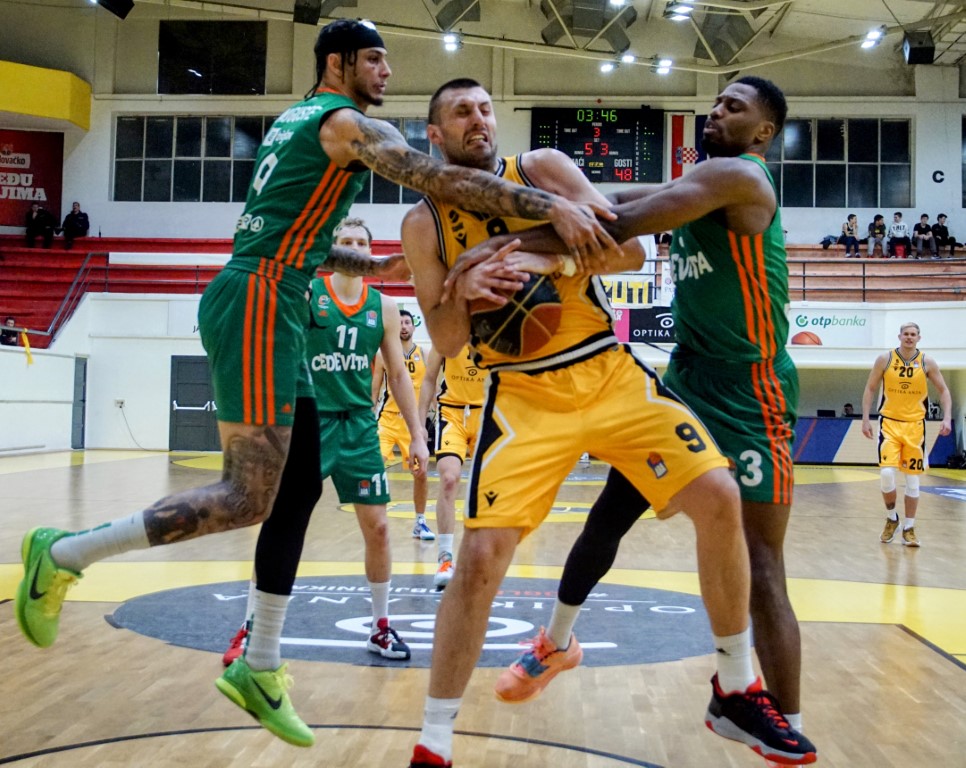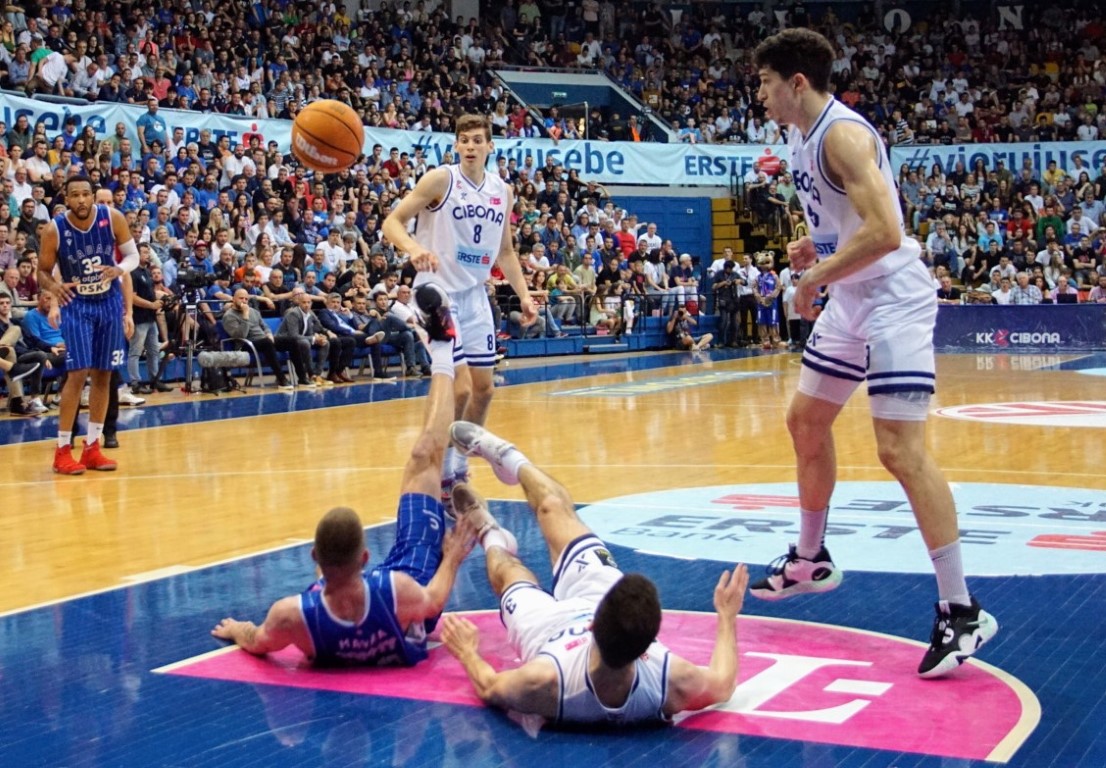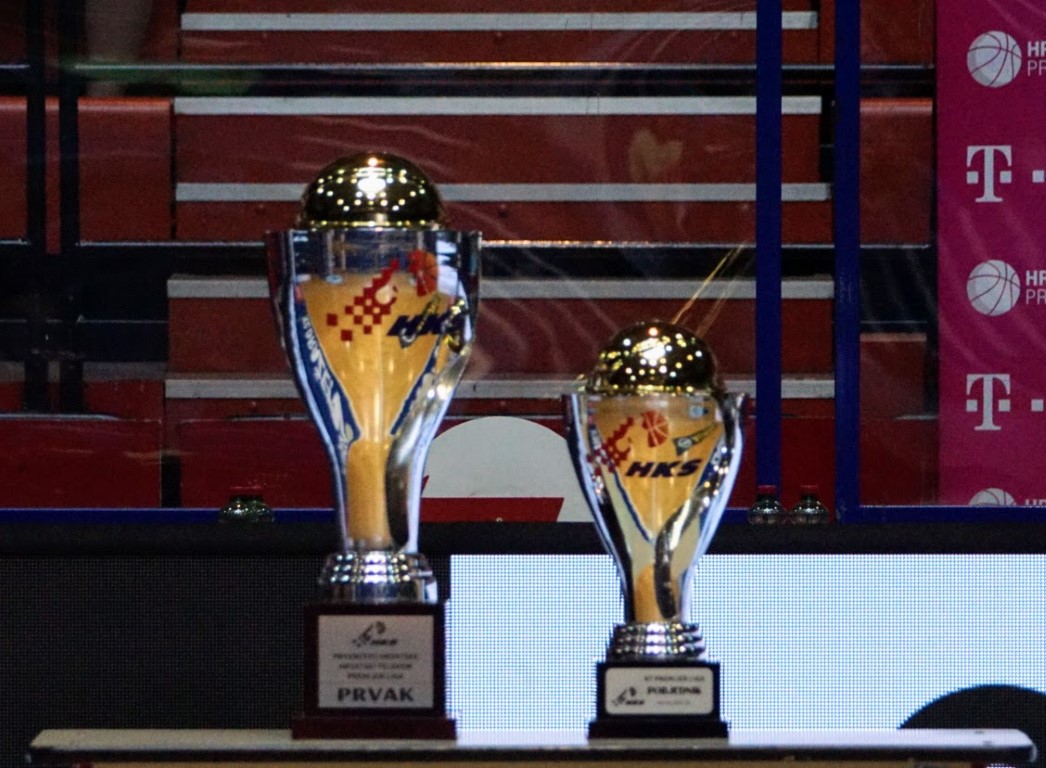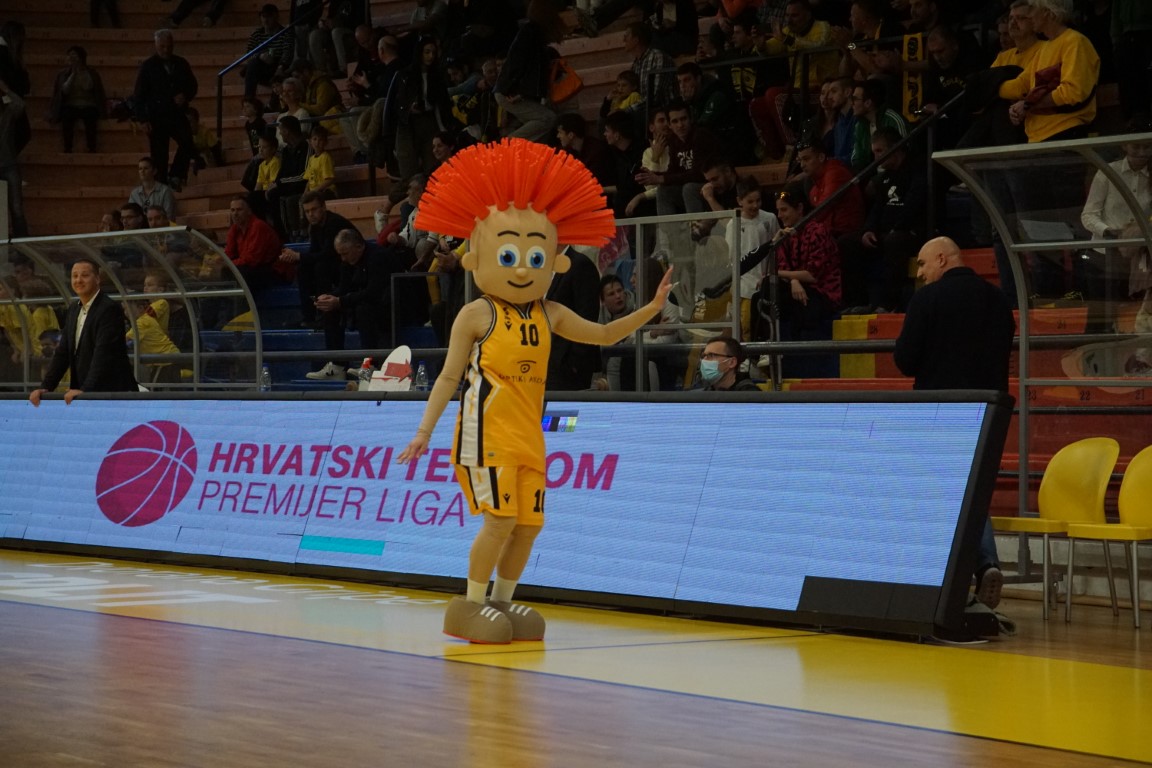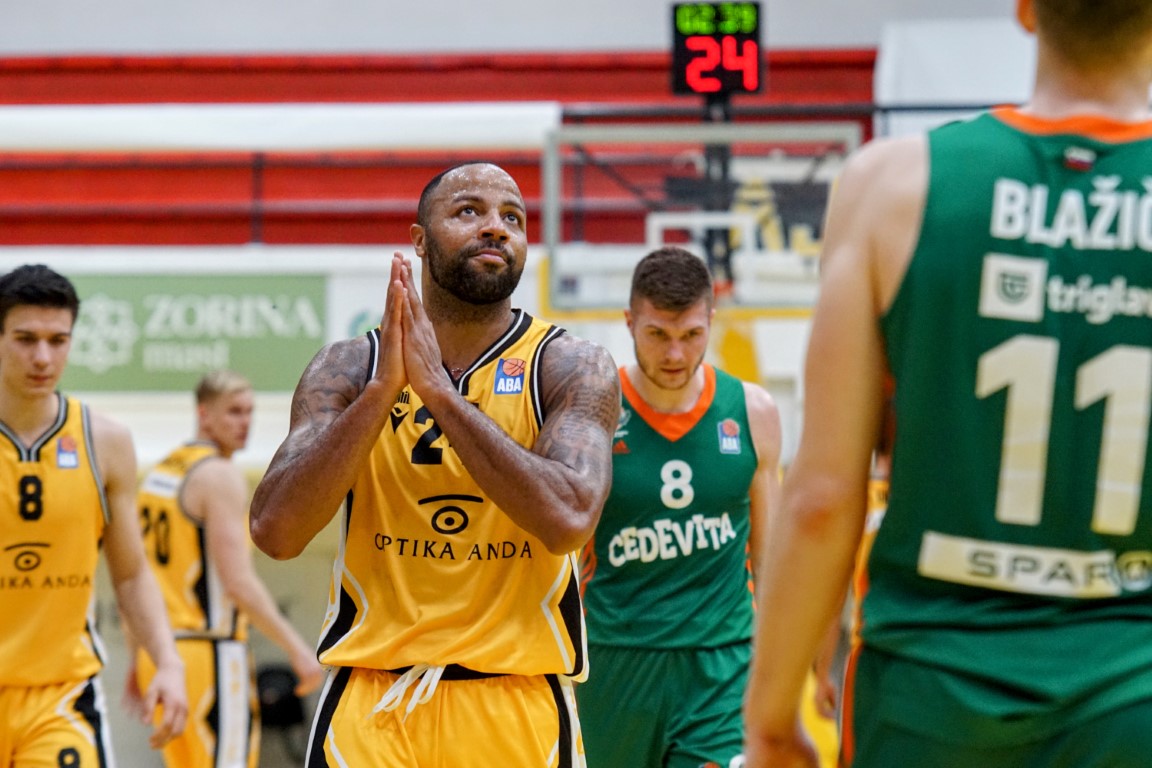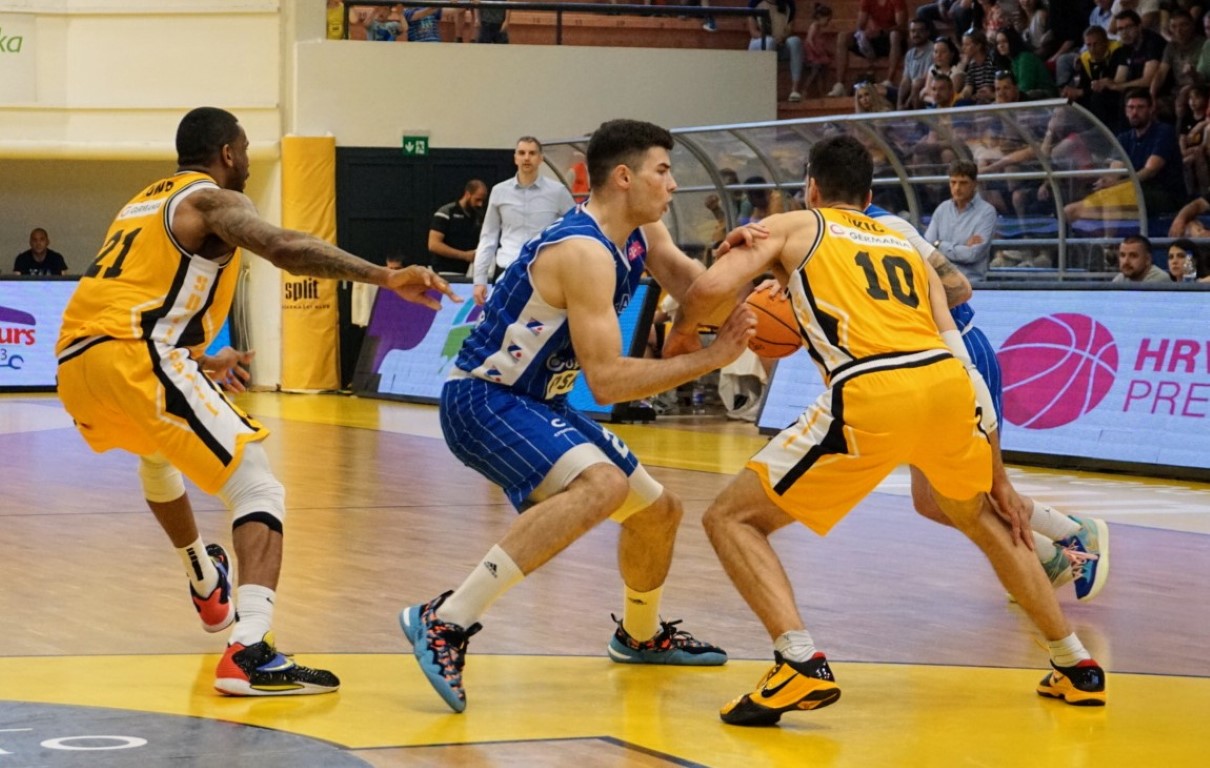Hajduk Announces Coach Ivan Leko, Starts 2023 with Over 8,000 Club Members
January 3, 2023 - 2023 is off to a running start for Hajduk. Former Hajduk captain and player Ivan Leko has been announced as the new coach, and fans have secured over 8,000 club memberships since January 1!
Ivan Leko is the new coach of Hajduk! On the last day of 2022, the 44-year-old expert from Split agreed to cooperate with the club until the summer of 2025. He will take over the Hajduk bench at the beginning of January 2023. The first official match of the former legendary and trophy-winning Hajduk captain is expected against Šibenik on January 22 at Poljud. Leko returned to his home club after more than 17 years and won the championship title as a Hajduk player in the 2004/2005 season.
He made his debut for Hajduk at 17 against Osijek under coach Ivan Katalinić. He made 187 official appearances in the white jersey, with 39 goals scored. He won the Cup with Hajduk in 2000, and as captain, he led the team to the championship title in 2000/2001.
In the summer of 2001, he signed for the Spanish club Malaga and returned to Hajduk again in the winter of 2005. In the same season, he won the league title. After that, he spent a large part of his career in Belgium playing for Club Brugge, Beerschot, and Lokeren, where he ended his playing career at 37. He made 13 official appearances for the Croatia national team.
"This moment is very special, emotional. I started playing football at Hajduk and knew the day would come when I would become Hajduk's coach. I am thrilled and looking forward to it, and I hope many beautiful things await us. So many things can be done. The fact is that Hajduk has made huge progress in everything in the last two years. From day one, we will emphasize energy, emotion, and passion, and everything we do will be with that emphasis. I hope our fans will enjoy watching our games," said Leko.
Leko was an assistant to Igor Tudor at PAOK, and as an independent coach, he managed the Belgian clubs Leuven, Sint-Truden, Royal Antwerp, and Club Brugge, with which he won the championship title, Cup, and Supercup and played in the Champions League group stage in 2018. He also sat on the bench of Al-Ain in the United Arab Emirates, and his last coaching engagement was with the Chinese Premier League club Shanghai Port, which he led for the previous two years.
The new year also means the beginning of the new Hajduk fan memberships. After the extraordinary 2022, which will be remembered for a record 90,480 members, this year expects even more.
Namely, in the 112th year of the club, Hajduk wants to reach 112,000 memberships!
"I think that is also impossible, but we have shown so many times that we are moving those boundaries; we can put that figure of 112,000 members to motivate us all together," said Hajduk president Lukša Jakobušić.
Membership fees this year are 20 euros. If you are under 18 or older than 65, memberships are 10 euros. Family memberships also have a discount of 2 euros for each additional family member.
The new year also means transfer news, and Hajduk has already made some announcements that have surprised some fans.
Stipe Biuk has left Hajduk after 67 official appearances. The 20-year-old winger left Poljud to join American Los Angeles FC, realizing one of the most significant transfers in the club's history.
As a captain and one of the most talented players of his generation, he led the Hajduk juniors in 2021 to their first junior title after nine years. He made his debut for the first team in March 2021 in a Cup match against Zagreb.
LASK Linz used the option to buy forward Marin Ljubičić, who went on loan to the Austrian club at the end of June this year. Immediately after arriving in Austria, Ljubičić became a standard first-team player and is currently the club's leading scorer. He made 17 official appearances for LASK in the first part of the season. Marin played 44 official matches for Hajduk, scoring nine times and adding four assists.
HNK Hajduk will play four matches as part of final preparations for the spring season, which will be held in Novigrad, Istria.
The first team continued preparations on Monday at Poljud and will travel to Novigrad on Thursday, where they will stay until January 15.
Match schedule:
NK Kalcer Radomlje - Hajduk (January 7)
MOL Fehervar - Hajduk (January 11)
Celje - Hajduk (January 14)
1. FC Slovácko - Hajduk (January 15)
Source: Hajduk.com
To follow the latest sports news in Croatia, follow TCN's dedicated page.
Croatia Tops Greece for Spot in European Championship Quarterfinals!
September 2, 2022 - Croatia and Greece draw 5:5 in Split on Friday, a result that brought Croatia first place in Group B and a spot in the European Championship quarterfinals!
The Croatia men's water polo team played their last match in Group B at the European Championships in Split on Friday. Croatia and Greece met in the final group game, which was also the game for first place - the spot leading directly to the quarterfinals.
The Croatia women's team already secured a historic quarterfinal on Tuesday, and after the men's side's opening win against Malta, they defeated France 13:7 on Wednesday.
The Croatia men's side entered tonight's match with great optimism as a draw was enough for them to win the group.
Losing, however, would give Croatia second place in Group B, which meant playing in the round of 16 on Sunday against the third-placed team from Group D.
Recall that Greece and France drew 12:12 on Monday.
Match report
1st Quarter
Croatia won the swim-off and the first attack of the match. Biljaka hit the post. Bijac saved Greece's first attack. Vrlic tried backhanding into the goal in the next attack, but the Greece keeper punched it out for Croatia's ball. Kharkov's attempt was saved in the same play. But Greece couldn't store either with Bijac in goal. The first four minutes of the match didn't see a goal. Greece was the first to score with 3:40 on the clock for 1:0. Fatovic hit over the post with just over 3 minutes to go. Bijac kept Greece from increasing their lead. With 32 seconds to go in the first quarter - Greece made it 2:0, which is how the first quarter ended.
2nd Quarter
Croatia won the swim-off of the second quarter as well. Kragic hit the post in Croatia's first attack. Another chance for Croatia also just missed the goal. Bijac continued to be brilliant in goal with save after save, but Greece's keeper also denied Croatia from seeing the back of the net. Kragic hit the post again with 4 and a half minutes left. Bijac was unstoppable, but Greece's defense was the same to protect theirs. Another shot for Croatia - another miss. With 1:58 to go, Croatia had a corner without any luck. Another great defensive play with a minute to go kept Greece ahead by only two goals. The match was 2:0 for Greece going into halftime.
3rd Quarter
Croatia won the swim-off to start the third quarter but could not get a shot off. Croatia denied Greece's first attack, too. Zuvela finally scored Croatia's first goal with 6:28 on the clock - it was 2:1. And Josip. Vrlic scored a screamer for the equalizer - it was 2:2 with 5:22 left! Bijac brilliantly defended before Greece found a way back ahead for 3:2 with 3:15 left. Kharkov equalized with 2:35 left for 3:3! Greece hit the post in the next play with just over a minute on the clock. Kragic tried shooting from far out, which was played for a corner. Greece called for a time-out with the attack and 15 seconds to go in the quarter. Croatia called for a time-out after a Greece goal was called back. It was 3:3 going into the final quarter.
4th Quarter
Croatia won the final swim-off of the match, and Kragic nailed the back of the net for the Croatia lead! It was 3:4 or Croatia. Bijac, yet again, saved the day in Greece's first three attacks to keep Croatia ahead. Greece hit the post with 4:52 on the clock and Bijac defended again. Greece equalized at 4:4 with 4:29 to go. Greece score for 5:4 and the lead again with 3:36 left. Rino Buric answered back for 5:5 with 2:52 on the clock. Bijac saved Greece's attack and Croatia missed in their next attack. Greece had the ball with a minute to go. But Bijac, being Bijac, let nothing go past him. The match ended at 5:5 for Croatia!
This result means that Croatia takes first place in Group B and secures a spot in the European Championship quarterfinals! Croatia plays the winner of the ranking game 4 on Tuesday at 16:30.
To follow the latest sports news in Croatia, follow TCN's dedicated page.
Brilliant Start for Croatia at LEN European Water Polo Championships in Split
August 29, 2022 - An easy win for the Croatia men's water polo team in their first match at the 35th LEN European Water Polo Championships in Split. Croatia crushed Malta 19:5 at Spaladium Arena on Monday night.
The third day of the 35th LEN European Water Polo Championships at Spaladium Arena in Split was held on Monday, which finally featured the men's competition and, of course, Croatia's Barracudas!
After the Croatia women's water polo team defeated Germany on Sunday, the men took the stage after the official opening ceremony.
The opening ceremony also welcomed the highest state, county, and city officials, including Prime Minister Andrej Plenkovic, Split Mayor Ivica Puljak, and Split-Dalmatia County Prefect Blazenko Boban.
"We are expecting a lot of guests, from the Prime Minister of the Republic of Croatia, ministers, representatives of the city government, heads of the boards of many Croatian companies and our partners, and most importantly, the people of Split and everyone who loves water polo to come and support both our national teams. I am convinced of a good game against Malta in a spectacular atmosphere, as well as I hope that we will reach the fight for a medal with the intimate desire to reach the final," said Perica Bukić, vice-president and executive director of the Croatian Water Polo Federation, before the opening ceremony.
The opening ceremony also featured Croatian music greats Zorica Kondža, Goran Karan, Tedi Spalato, Lidija Bačić, and Ante Gelo, among others.
Croatia and Malta met in the 1st round of Group B from 21:00.
"We are looking forward to the start of the European Championship, which is the end of long preparations, a tiring summer in which we also played the World Championships. We have done everything necessary, the national team is ready for the start of the competition, and we are starting to achieve the biggest and best result possible," said coach Ivica Tucak before the match.
Match report
1st Quarter
Kharkov won the sprint for Croatia to kick off the first quarter, but the attack went without a goal. Malta's first attack was also unlucky. Loren Fatovic scored Croatia first goal with 6:53 on the clock for 1:0. Malta's next attack also went without a goal. Krzic made it 2:0 for Croatia with 6:19 left. A brilliant save by Bijac kept Croatia ahead with 3 minutes to go. The first quarter ended 2:0 for Croatia.
2nd Quarter
Malta won the swim-off for the first attack of the 2nd quarter but failed to score. Croatia did not score in their first or second attack. Malta hit the post with just over 5 minutes to go but still couldn't find the back of the net. Ivan Krapic made it 3:0 for Croatia with 5:15 left. Zuvela intercepted Malta's next attack though Kragic's shot was blocked. Croatia's defense blocked Malta's next attack, and Rino Buric had a quick counter. Buric passed to Kragic, who scored for 4:0. Buric found the back of the net with less than 2 minutes to go until the half - 5:0 Croatia! Malta's first goal of the match came with 1:09 left. A brilliant interception and one-on-one for Loren Fatovic was ultimately called for a Malta ball, and the match went into halftime 5:1 Croatia.
3rd Quarter
Malta won the swim-off of the third quarter and scored for 5:2 in their first attack. Croatia was unable to score in the next play. Kharkov's shot hit the post, which found Fatovic, who scored for 6:2 Croatia with just over 6 minutes on the clock. Luka Bukic made it 7:2 for Croatia in the next play. Kragic scored a rocket for 8:2 with 5:10 left. Kragic scored for 9:2 with less than 4 minutes to go in the quarter. Rino Buric scored for 10:2 Croatian with 2 minutes left. Fatovic scored for 11:2 with just over a minute to go before the final quarter. Fatovic scored for 12:2 with 44 seconds on the clock. Malta scored for 12:3 to end the third quarter.
4th Quarter
Zuvela won the swim-off for Croatia's first attack of the final quarter. Zuvela scored for 13:3. A penalty was called for Croatia with 6:05 on the clock, which Kragic scored for 14:3. Zuvela impressed with a backhanded move around the Malta defender and lob over the keeper for 15:3 with 5:34 left in the match. Fatovic scored for 16:3 with just over 3 minutes in the match. And it was 16:4 after a Malta goal seconds later. A brilliant play in the Croatia attack found Buric alone in front of the Malta goal to score for 17:4. Malta found the back of the net again with 2 minutes to go in the match - 17:5. Krapic scored with 39 seconds left for 18:5. And Kharkov scored the final goal of the match for 19:5 Croatia!
Croatia plays France next on Wednesday at 20:30.
Upcoming schedule of concerts at Spaladium Arena's Jana - Water City
Tuesday, August 30
21:00 – Matija Cvek
Wednesday, August 31
22:00 – Mladen Grdović
To follow the latest sports news in Croatia, follow TCN's dedicated page.
KK Split is Up for Sale (Again)
Why it is not worth anything. Ništa. Not a single Lipa! (EDITORIAL)
Split, 23.08.2022 - The City of Split is again trying to find an investor for the Basketball Club KK Split. This time it is official. Read the invitation to tender here.
In the tender, the City of Split states the value of the shares which it offers for sale at 4'000'000 EUR, that's the shares it wants to sell, so they value the club at around 6 Million Euro, which is the amount at which all issued shares were handed out.
Our contributor Burak Canboy had considered to invest into the organization in 2013/2014 and has been covering the club for TCN during the last two seasons.
Here is his personal opinion on the value of the club and the politics going on right now.
EDITORIAL:
Let me say it out loud first. Those who don't want to listen to arguments may call me a traitor, a rich foreigner who doesn't understand Croatia, they may want me banished or may crucify me at the next game and then those who actually like to deal with the matter will hopefully read this opinion. In the current state, KK Split is not worth anything. Ništa. Not a single Lipa!
Now it is out. So, why do I believe the team that dominated the late eighties and early nineties, the big Jugoplastika Split that was officially named the best European club of the 20st century by FIBA is currently not worth anything? The club that resides at Gripe, a gym that was built mostly by the hands of its members. In a mecca of basketball that hosts the biggest trophies and most valuable jerseys in the "yellow salon". The club that is quite correctly called one of the most successful clubs in the history of European basketball. Winning three consecutive EuroLeague titles, two Korač Cups plus 3 Triple Crowns, 6 Yugoslav Championships, 5 Yugoslav Cups, 5 Croatian Cups and 1 Croatian Championship. A club that competes in the prestigious ABA League and plays for championships in the Croatian National League. A club that created greats like Branko Radović, Ratomir Tvrdić, Toni Kukoč, Dino Rađa, Žan Tabak, Petar Skansi, Velimir Perasović (please forgive me that I did not list everyone, it is a very long list).
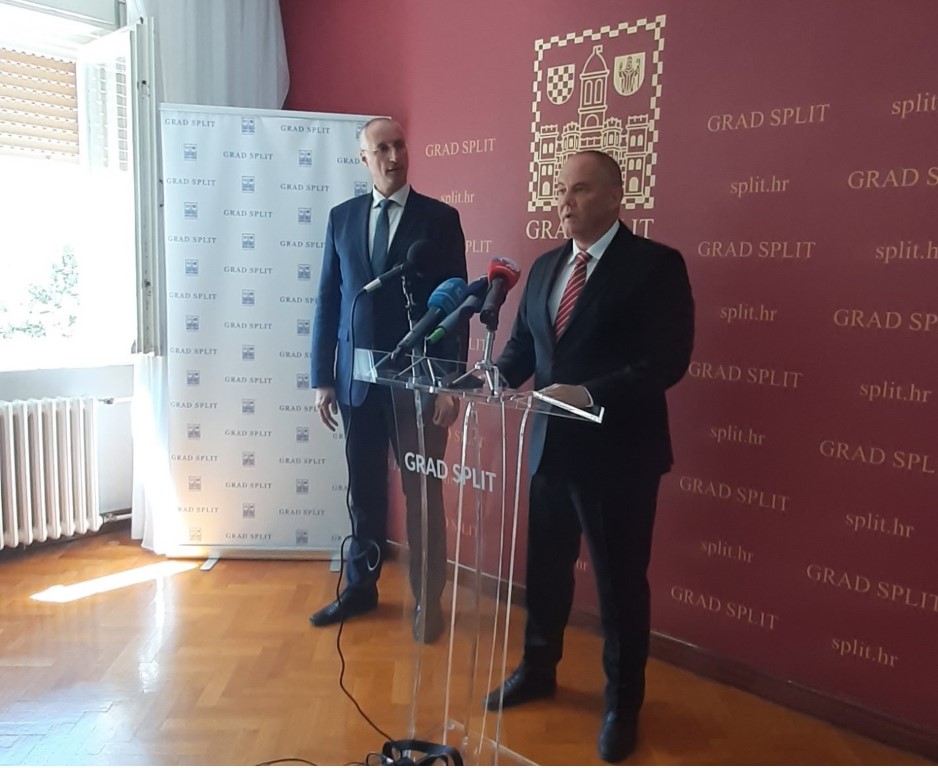
Mayor Puljak and Deputy Kuzmanić presenting their ideas for KK Split (Photo: Grad Split)
Well, in the world of business there is a word for value that cannot be measured by the sum of its assets. It is called "goodwill" or "value of intangible assets". When you look at the world's largest companies with high goodwill, Coca Cola used to be the example in the nineties, today it is companies like Microsoft and Amazon that mainly consist of value which stock markets assess because people are willing to pay more per share than the sum of assets listed in their balance sheets, divided by the amount of stocks issued. Where there is goodwill there is also the opposite. Companies worth less than their sum of assets. You hear stories of companies given away for a dollar sometimes but more often than not, those companies are not even worth the dollar. They disappear more or less silently because nobody wants to risk renovating, restructuring and rebuilding such companies.
Now that I have given a short excursion to the business world in the US, let's get back to Europe, the Balkans (or as some people like to call it Southeast Europe nowadays), Croatia, Dalmatia, Split, Gripe, KK Split. There is a reason why I am listing them in this order. but all of these have a reason why the club is not worth anything. Ništa. Not a single Lipa!
European Union:
Let's start with Europe. During the Global Financial Crisis of 2008, which became a european financial crisis in the years after and lead to Greece being put under financial supervision (which just ended a few days ago btw.), some people started to wonder how football clubs and to some extent also basketball clubs in Greece could have such huge budgets if the country is basically bankrupt. Clubs like Panathinaikos, AEK, Olympiakos and PAOK were very successful in Europe and globally known to be paying very good salaries, frequently bringing in players from the NBA or stopping players from going there.
This was not just an exclusively Greek behavior, but also quite normal in Italy, France and Spain and obviously also in most other european countries, but they are not so well known for their well paying leagues. The spotlight was just shining brightest onto Greece, while Europe wanted to stop waste of taxpayers' money.
CEDEVITA: Money goes to Slovenia now (Photo: Burak Canboy)
The clubs and local governments had become so intertwined that big parts of the clubs' budgets consisted of money being transferred from the governments to the clubs declared as "sports education", "funds for sports equipment ", "youth support", "tourism support", "business growth support", "gym maintenance " and many other creative ways. While all these can be very much in the interest of the public and are surely worth spending public money for, in most cases that money was not used for that purpose, but for the running expenses of an internationally competing professional team. This practice has been deemed illegal by the European Union and is considered a "preferred subsidizing of business". Now, the City of Split has been very creative as well in the past years, but it is quite obvious that continued participation in the ABA League and playing for championships in the croatian league would not have been possible if all salaries, participation costs and travel expenses of the professional team had had to be paid for by income from TV broadcasting rights, ticket sales, sponsors and other revenues such as sale of merchandise. During the last years the club had over and over accumulated losses that the city had to cover by increasing the capital of the club. Now, creative as it may be, in the end it is the exact behavior that the EU wanted to stop. Now, if the club did not have money coming from the city, it would be bankrupt. Worth nothing. Ništa. Not a single Lipa.
Balkans/Southeast Europe:
Yugoslavia the former world force in basketball is shattered. Romania, Bulgaria, Albania were never really big. Bosnia & Hercegovina 45th in the world, Kosovo 71st and North Macedonia 52nd play no large role, Croatia as described later is in a free fall. Serbia (4th), managed to re-establish some of the former glory, Montenegro is a recent positive surprise (25th) and Slovenia is a rising star (3rd), but in general basketball business at successful clubs is mostly run by dubious owners/presidents or player agencies often enough operating in dark grey areas of the law and federation regulations (surely nobody wants to see KK Split becoming a front for some completely illegal business). In countries that are non-EU, strong government funding is still predominant. And if you watched the finals of this year's ABA League between Partizan and Red Star you got to see how some fans like to use the game to show how ugly and disgraceful sports can be.
Extra value for the club: Ništa. Not a single Lipa.
Croatia:
The national team could not even pass a group with Finland (35th in the world) and needed 2 overtimes to barely beat Sweden once (51st in the world !), and now rightfully has to play in a group with Switzerland (world's 60th) and Austria (61st) to re-capture just the opportunity to qualify for the World Cup in 2025.
Zadar and CIBONA on the floor? (Photo: Burak Canboy)
KK Split's competitors in the national league
- CEDEVITA, has seen the big money move to Slovenia.
- CIBONA is clinically dead, pretty much bankrupt, kept alive with tax payers' money and/or lack of transparency.
- KK Zadar is clinically dead, kept alive with tax payers' money and/or lack of transparency.
Most other clubs in the croatian league are - yes you guessed it right - clinically dead, kept alive with tax payers' money and/or lack of transparency.
Apart from that, favoritism amongst coaches, referees and other officials more often than not stand in the way of effectively developing national talents.
Extra value for the club: Ništa. Not a single Lipa.
Dalmatia:
Turizam, Turizam i Turizam. Do I need to say more?
Croatian Title Trophies. Too far to reach? (Photo: Burak Canboy)
Dalmatia lacks large global or at least international companies that can use a basketball team as their "travelling signpost". When you look for big clubs in Europe you will find Efes, Beko, Armani Exchange, ALBA as sponsors carrying weight for successful clubs or you find teams like Real Madrid, FC Barcelona and FC Bayern Munich profiting from the groundwork, their football clubs have done in finding sponsors and building a name for the organization.
Lack of potential large sponsors, preoccupation with a single economy. Extra value for the club: Ništa. Not a single Lipa.
Split: Politics and Hajduk
The City of Split created an unprofessional presentation for the tender (no assets listed, very short time given for due-diligence, no contractual obligations listed, no own concept or ideas presented). So either some back-room deal is already made or the responsible people think they can find an idiot who is willing to buy the pig in a poke, or as they say elsewhere, buy the cat in a sack.
Then you should not forget that there is already a major power house in town. Football is King and in Split the King is called Hajduk. Instead of trying to benefit from the big brother, a separation is being forced and Torcida named unwanted guests on Gripe.
Lack of potential large sponsors, presence of an overwhelming football power means a lack of positive future paired with involvement of politicians in a business. Extra value for the club: Ništa. Not a single Lipa. (For the involvement of politicians this number should be very large. But negative!)
Efforts in Vain on Gripe? (Photo: Burak Canboy)
Gripe:
Despite wonderful gyms being available in the city like the two larger gyms on Gripe, the small court under Spaladium Arena, the gym at the Pool on Poljud, Spaladium Arena and probably others I don't even know, KK Split continues to practice at Gripe. The home court advantage is canceled out by the limited usability of the space and the poor condition of the building. It is not possible to have multiple teams practice in the gym at the same time. The space in the back of the gym that Dino Rađa helped to renovate a few years ago is good for individual training but overall the layout of the gym is miserable for a basketball club with ambitions.
The building's energy efficiency is terrible, operating costs, high. Existing tenants have been there forever and are probably paying below-market rent.
If the city does not spend considerable money to renovate the gym and give a reasonable long term concession, the extra value for the club: Ništa. Not a single Lipa.
Unless we go back to the plans of Ivo Baldazar or Željko Kerum to sell all or part of Gripe to some real estate investment company and to have them take care of the club in return. But still the value of the club remains: Ništa. Not a single Lipa.
Yellow Salon:
This is a cultural item. It cannot be transferred to a new owner. It has value as a museum. It has value for the city, for the citizens, for the players, for the employees of the club. It should be moved to a place where everyone has access to it. It cannot and should not be transferred to an investor because Cups and Medals cannot be bought.
Value for an investor: Nothing. Ništa. Not a single Lipa.
K.K. Split:
The club has a very long history of not being able to operate profitably. The last administration was not long ago and not much seems to have changed since then when it comes to control, supervision and direction. A long history of mismanagement and even what may be called accepted corruption and embezzlement when it comes to how talented players were treated. Surely Dragan Bender's and Ante Žižić's move to Maccabi with Nikola Vujčić were not "kosher" but nobody was interested in suing for damages. While thinking about things that went missing: the whereabouts of the Korač Cup that disappeared from the Žuti Salon is still not known. Is it?
Shannon Shorter praying for help (Photo: Burak Canboy)
K.K. Mislav a small club without a gym in Podstrana just had the second player go abroad (Tomislav Buljan just moved from Zadar to Spain after Stipe Jelić had already left for Italy in 2019). How many talented players has K.K. Split produced that went abroad. Let's say there are more than Perković and Perasović, but how much money has been paid to the club for players leaving during the last 20 years?
How many young players in the current roster have long term contracts that may lead to income from a sale at some point in the future?
Sorry to say, but the only value in the club is the right to play in ABA League and the croatian first league. But again, what is that worth without the city's subsidies?
Yes. Nothing. Ništa. Not a single Lipa.
Opportunities:
Now, when could an investment into the club make sense? When the city and all people involved understand that the value of shares is nothing. Ništa. Not a single Lipa.
Once that is understood, the company can process the opposite of a recapitalization, a capital reduction. When all existing shareholders have their shares reduced to a value of close to zero or zero, and all existing debts have been cleared, then you can start a fair partnership by raising new money. If the city then wishes to have a 25%+1 controlling share, it will need to invest at the according rate, as a new investor would. Twice as much, if the city of Split wishes to keep 50% of shares.
A sample mission & vision for the club was already gifted to the club and the city in 2014. Look for yourself how much of it has been adopted and how much more needs to be done before you can call the club valuable: KK Split Mission & Vision 2014
"Grado" and his boat "Žuta ljubav"
To give a more local comparison of how the City of Split calculates the value of the club, I will explain by using the example of a boat and a fisherman. Now, at some point in the past, someone sold a boat named "Žuta ljubav" to a local fisherman who wanted to take tourists to beautiful bays that you could only reach by boat. The fisherman was called Grado because he could exactly tell the temperature to the tenth of a degree. The boat was old but it was a wonderful boat. It used to be quite a beauty back in the days. The design had aged well and it was still floating. It could sail near the coast and even a little further out but no longer in blue waters as it once did. "Žuta ljubav" needed a lot of crew to operate and a lot of maintenance, because former owners had taken away important parts and just replaced them with whatever they could find for cheap. Every year, the boat needed an expensive crew to operate, it needed new sails, the engine needed to be repaired, leaks needed to be filled and all moving parts needed to be serviced. The berth needed to be paid. And despite all the work time and money put in, it never looked as good as it once did and always barely stayed afloat because Grado could not afford a full renovation. Even though the boat used to drive people around and conducted business, every year the owner needed to add money from his own pocket. Sometimes more, sometime less.
Tomislav Buljan: From Podstrana to Zadar to Spain (Photo: Burak Canboy)
After years of losing money Grado became tired of taking care of "Žuta ljubav" and asked his oldest son if he wanted to have the boat. He declined, so did his second son and his youngest son. They didn't tell their father the real reason because they were afraid he may be disappointed and die from sorrow. The oldest used his family as an excuse and said that he needed to keep his stable job. The second son said he could not swim and the third wanted to become a musician. So one day Grado took his sorrow to his neighbor and friend Stino. Stino who was known to be brutally honest, gave him a glass of Orahovac and a big glass of cold water. "Enjoy the Orahovac" he said, "you will need the cold water later." "Why?" asked Grado. "Well, my dear friend. Love has made you blind. You have spent so much money on your boat during the last years, and you think it is worth a lot, because you have spent so much time and money on it. But today after almost 6 million Euros spent, it still barely floats, it still costs you a fortune to operate and maintain and even if you didn't use it, you would still need to pay for the berth. Your sons love you too much to tell you, but you managed not to sink the boat, instead you have sunk all your money. No-one will buy your boat, because it barely stays afloat and doesn't make any profit. My friend, when you open your eyes, you will understand that the value of your boat, even though it floats, is zero. Nobody who knows the slightest bit about boating would buy it. If you paid someone to take it, maybe you can get rid of it. But if you ever want to make money selling it, you need to first either spend a fortune renovating it or at least make it profitable. So profitable that you can easily pay the crew, the maintenence, the berth, everything and have money left at the end of the season so you can enjoy a long winter without having to work. Then my friend it will still be hard to sell an old boat, but at least it will be a profitable business. But now it is not worth anything. Ništa. Not a single Lipa." Grado finally understood and when the truth arrived, it hit him like a truck, but at least he still had the small joy of a cold glass of water to look forward to.
Still don't believe me that the value of the club is nothing? Ništa? Not a single Lipa? Well, just go ahead and ask any of the employees of the club to reduce their salary by 50% and give them the rest of salary in shares. Or you could even ask Mayor Puljak and Deputy Kuzmanić who are trying to sell the shares, if they would agree to have their salaries in the next 4 years paid in shares of K.K. Split instead of money. I dare anyone to come forward and say that they would prefer to be paid in shares of KK Split than in Kuna. Guess how many would agree to that and what they would probably say: The shares are worthless, because the value of the club is nothing. Ništa. Not a single Lipa!
The views of the author are not necessarily the views of TCN.
Preparations Underway for 35th European Water Polo Championships in Split (VIDEO)
July 20, 2022 - Spaladium Arena, the central venue of the 35th European Water Polo Championships, played from August 27 to September 10, 2022, is slowly transforming into a water polo stage.
Installing the built-in swimming pools is underway, which will host the creme de la creme of European water polo at the end of the summer and give birth to new European champions, reports Dalmacija Danas.
"In addition to the preparations that have been ongoing for some time, now the foundation of the whole story, the symbol of this sport, has arrived at the Spaladium Arena, which is the swimming pool. The assembly will last exactly one month, after which the finishing works will follow, all to ensure that all participants, as well as visitors, enjoy a real spectacle at the end of summer in the heart of Dalmatia," noted Renato Živković, general secretary of the Croatian Water Polo Federation and executive director of the European Championship Organizing Committee.
There will be two swimming pools inside the Spaladium Arena hall. The central pool, where the European matches will be played, is 36 meters long, 25 meters wide, and 2.20 meters deep, giving a total capacity of 1,980 liters of water to fill. The Spaladium's small hall will have a smaller pool for team warm-ups, 25 meters long, 18 meters wide, and 2.20 meters deep. The volume of the small pool is 990 liters.
"While the pools are getting their contours, we remind you that tickets for the water polo spectacle, co-organized by LEN and the Croatian Water Polo Federation, are on sale online and at all Adriaticket points of sale. In addition, for everyone who wants an unforgettable experience and those who want to be a part of the European championship, there are applications for volunteers.
The stage in Spaladium is in good condition, and the mascot Roko is in full operation. He participates in the works every day on assignment and can't wait for the arrival of numerous cheerleaders and fans from all over Europe, selfies, autographs and lots of good fun. And that's why you should be part of this magnificent water polo story at the end of the summer," concluded the organizers.
To read more about sports in Croatia, follow TCN’s dedicated page.
ULTRA Europe: TCN Meets Grammy-Nominated Sofi Tukker before Croatia Debut
July 9, 2022 - Ultra Europe returned to Split on Friday after a two-year hiatus due to the pandemic. TCN was live from Park Mladeži on night one and caught up with US-based musical duo Sofi Tukker ahead of their first Ultra mainstage performance and Croatia debut.
It's no surprise that Ultra Europe organizer Joe Bašić is thrilled that one of the world's largest electronic music festivals is back and better than ever in the Dalmatian capital.
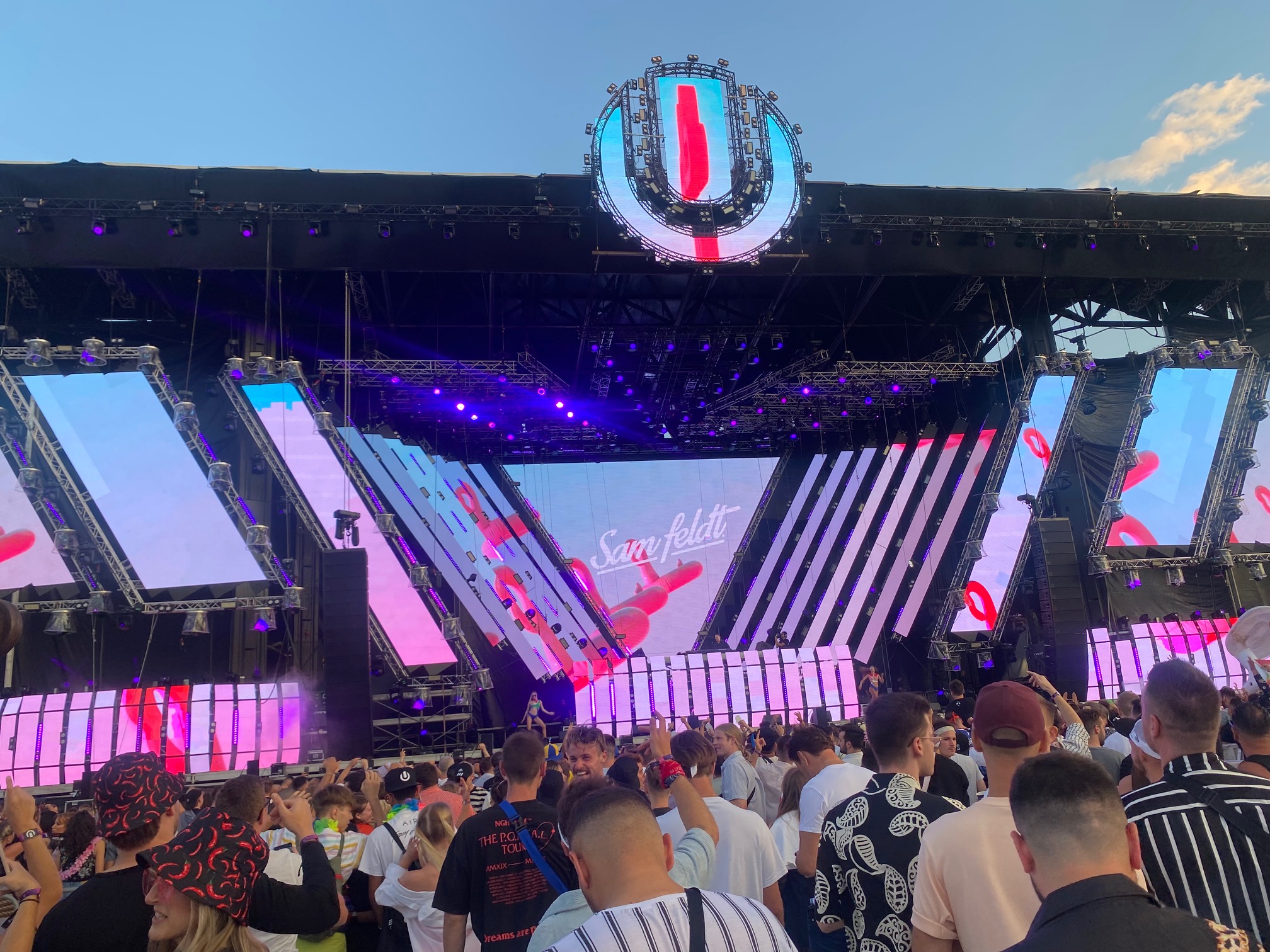
"We are back where we were before and are even better. I'm getting comments from all over that Ultra Europe is stronger than ever. The most important thing is that everyone felt the vibe of the hospitality of the citizens of Split," Joe said after the festival's first day.
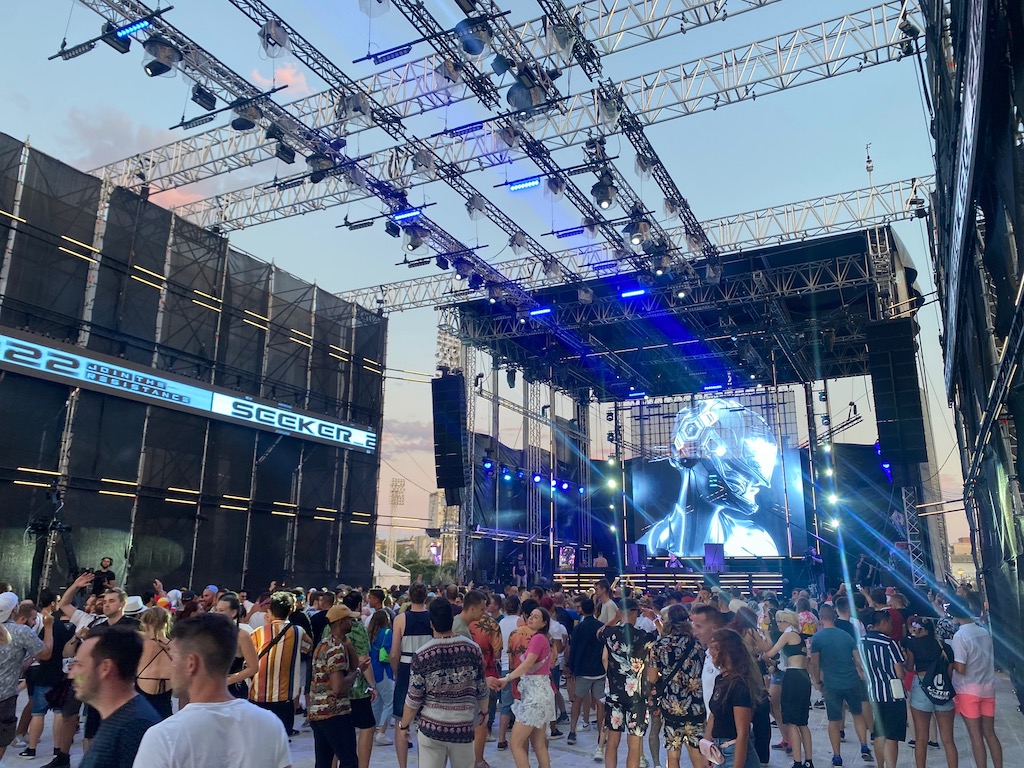
40,000 'Ultranauts' from 140 countries visited the festival's first day, which brought out big names in the EDM scene like Armin Van Buuren and Afrojack.

One of the main stage acts on Friday was Sofi Tukker, a US-based musical duo playing their first-ever Ultra main stage show.
"It's also our first time as a band in Croatia," said Sofi, who had only visited Pula in Croatia before while living in Trieste.
"My experience so far of Split has been heavenly. We got here and jumped in the sea. We had lunch. We walked around the old town and saw the palace. My mom saw our Instagram stories and said, 'you know that was built in 300 AD, right?' added Sofi.
"We had pršut, too!" Tucker said.
Sofi Tukker is also coming off a performance at Ultra Miami back in May.
"It was amazing, but a totally different experience as we did our live show there, and this time we are playing the Ultra main stage - which we haven't played before," Tucker said.
"Our performance tonight at Ultra will be a bit of a hybrid performance because we still sing live, but our DJ sets are different in that it is a continuous dance party. It's really fun!" added Sofi.
The musical duo was also nominated for two Grammy awards shortly after they joined forces.
"We were nominated for our first song, which was insane. Our first album also got nominated. The first nomination was especially shocking because we didn't even know we were up for the award, haha."
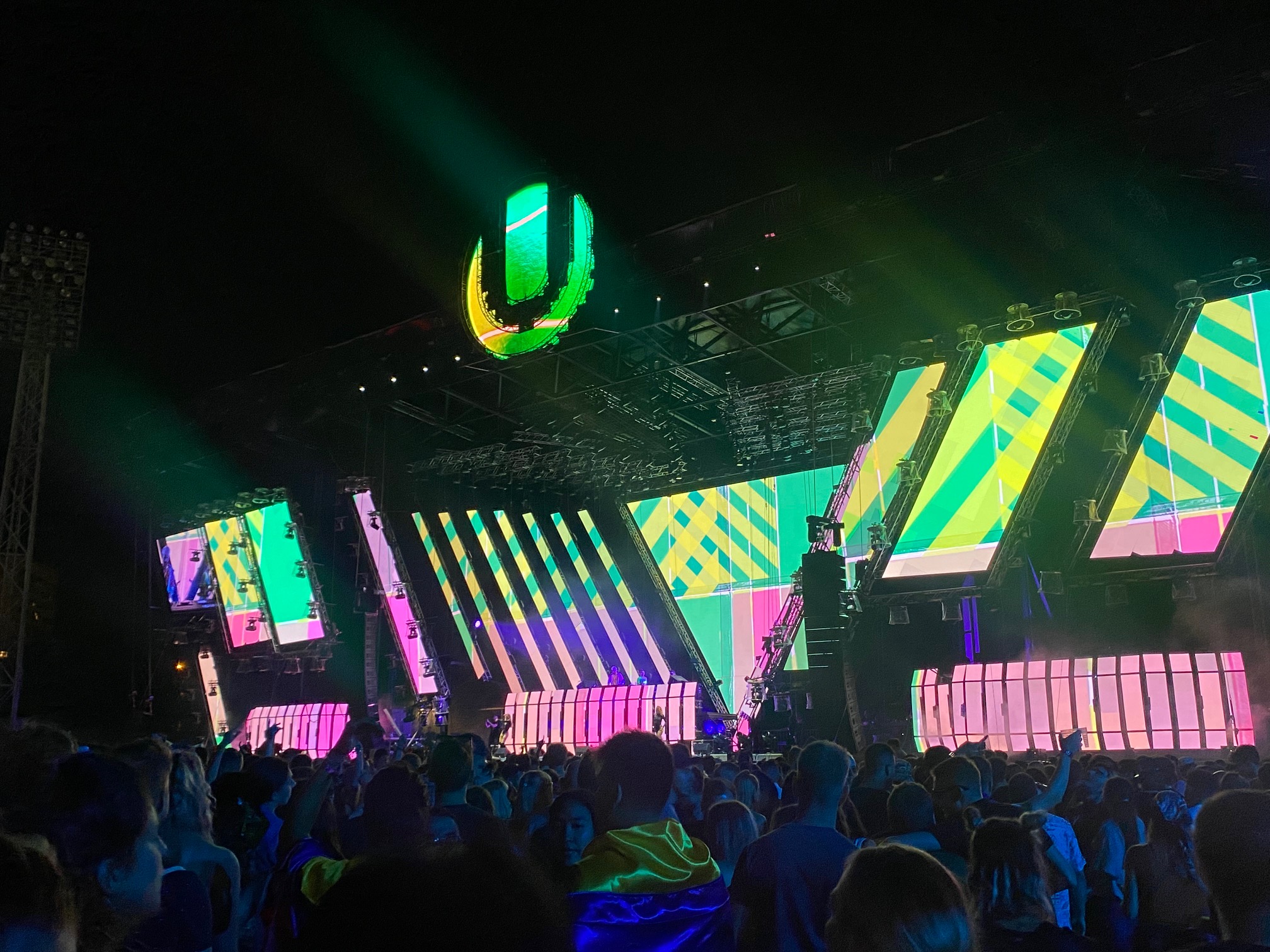
The duo is based between New York and Miami and is embarking on shows worldwide this year.
"We just put out an album and are touring it. We just finished the first part of our North American tour. We are going to Barcelona tomorrow; then we are going to Australia to play Splendour in the Grass. We're back in Europe in August!"
And to end - a message to Sofi Tukker fans in Croatia?
"Hvala!"
To read more about sports in Croatia, follow TCN’s dedicated page.
2022 Ultra Europe Fashion Collection Presented for Men and Women
June 28, 2022 - The 2022 Ultra Europe fashion collection is here for both men and women - and it is entirely produced in Croatia!
The season of summer music events is here, and with the biggest music event in the region around the corner, ULTRA Europe is here to help you find the best fashion fits. In addition to a stellar lineup and fantastic production, one of the most important and recognizable aspects of ULTRA is the full range of creative and innovative fashion from visitors from more than 140 countries, making the Youth Park stadium a diverse mix of cultures and personal styles. The ULTRA Europe Festival has become recognized as an unusual music and fashion playground, which promotes inclusiveness, creativity, and authenticity. Thus, this year, an entire fashion collection for women and men has been revealed!

The main actors of the latest collection are reflective holographic bomber jackets, neon leather designs, neon tones on T-shirts, caps, backpacks, and sunglasses that perfectly reflect the vibe of the ULTRA Europe festival. Combined with various details, they create an authentic neo-cyberpunk look. To take your outfit to an even higher level, there are also bracelets, flags, bandanas, and bucket hats, which are an absolute hit all over the world this season.

This year's collection also presents a new line dedicated to one of the world's most famous music programs, which has its special stage in the Youth Park. Namely, the RESISTANCE program focuses on underground electronic musicians and offers the integration of an independent fashion scene with dark techno vibes. Black hoodies, T-shirts, and fashion accessories such as caps with military details are just some of the pieces in this year's festival collection.
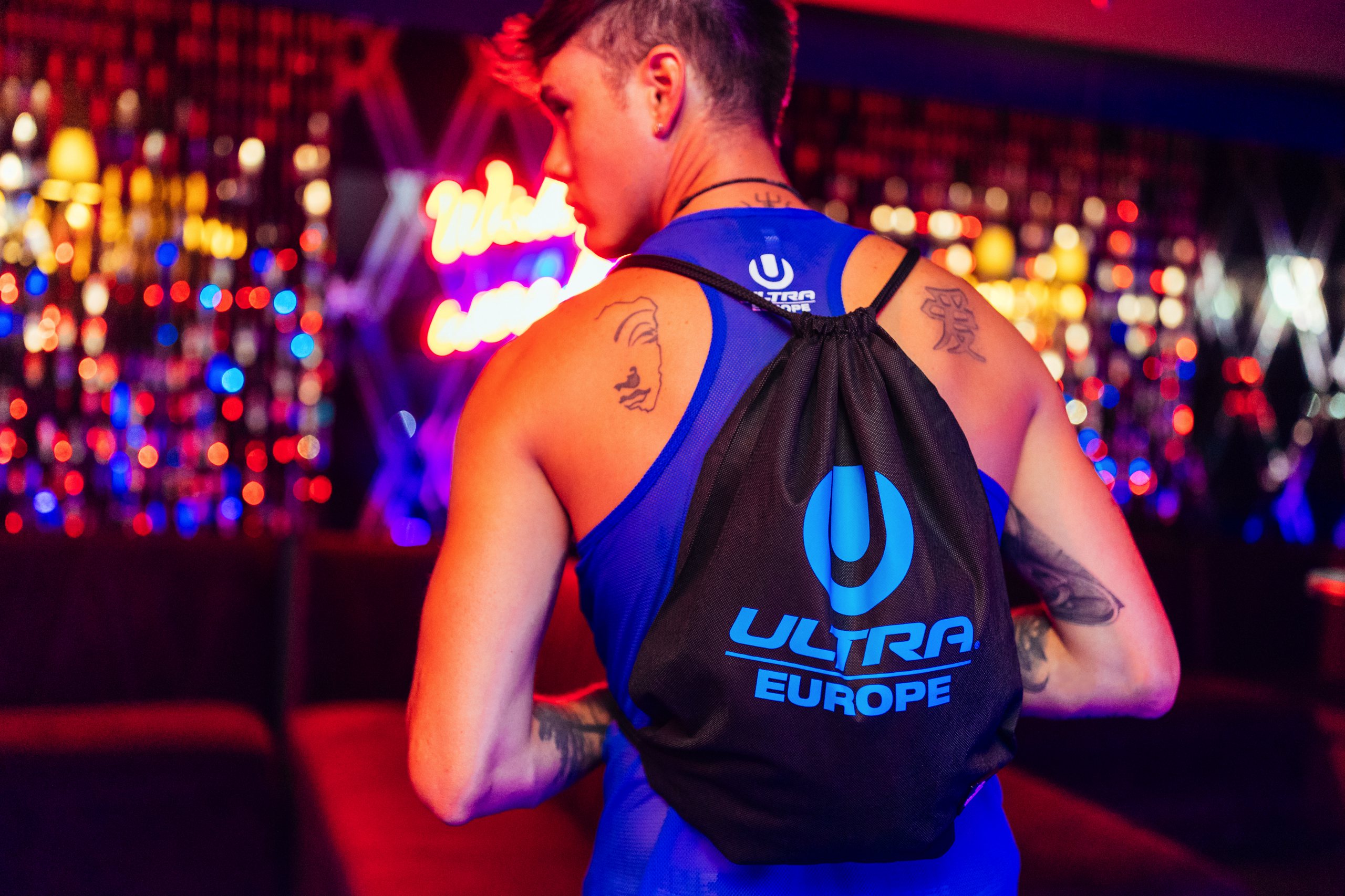
The entire textile range is produced in Croatia, from certified materials and can be purchased on the West Coast in Split from July 5 to 12, at the camp in Omis from July 7 to 12, and at several locations within the Park Youth. Payment is possible with all cards, and through the cashless system, and for all purchases over 300 kuna, a drawstring backpack is added to the purchase until stocks last. In addition, for all purchases over HRK 350 with a Mastercard card, a 10% discount is granted.
The collection was shot at the Secret club in Zagreb. In front of the lens of photographer Mario Poje were two famous Croatian models, Lana Klarić and Sandro Stanojević. Karla Glasnović (Profokus) was the makeup artist, while Fran Brunović (Profokus) was in charge of the hair.
The Croatian National Tourist Board and Samsung Electronics Adriatic are proud partners of the ULTRA Europe festival. ULTRA Europe is held at the Youth Park from July 8 to 10 and then embarks on Brač, Hvar, and Vis islands. Several international stars are arriving in Split, including Above & Beyond, Adam Beyer, Afrojack, Alesso, Amelie Lens, Armin van Buuren, DJ Snake, Hardwell, Joseph Capriati, Marco Carola, Martin Garrix, Marshmello, Nicky Romero, Nina Kraviz, Oliver Heldens, Richie Hawtin, Steve Aoki, Tiësto, Timmy Trumpet, and Vini Vici, and will be joined by ACRAZE, Airod, ANNA, Frank Walker, Ilario Alicante, Krewella, Sam Feldt and SOFI TUKKER [DJ set].
All information about the festival can be found on the official website www.ultraeurope.com.
All photos by Mario Poje
For more, check out our lifestyle section.
7-Year Itch or Continued Bliss? A Reflection on 7 Years in Split
June 24, 2022 - 7-year-itch or continued bliss? A reflection on 7 years in Split by TCN's Daniela Rogulj.
June 24th marks my Croatia anniversary. It is officially the longest place I have lived outside the small town of Fallbrook, California - the so-called 'avocado capital of the world' and an agricultural oasis an hour north of San Diego, where I was born and raised. San Francisco took the cake before Split, where I spent six years attending university and launching myself as a fresh-faced 21-year-old into the fast-paced startup world. I had no idea then that I would end up in Croatia, let alone Europe, at 24. California was my home. The state that made me. But Croatia has transformed me into who I am today.
I know I've said this many times, and anyone who knows me or has followed my journey here knows that I moved to Split accidentally. After spending six months in London, I was desperate to finalize my Croatian citizenship to either stay in London or move anywhere else in Europe (like Berlin). During that time, my parents moved to Split to retire, and one month later, I visited them to sort out citizenship paperwork and enjoy the same Croatian summer I had since I was a little girl.
I arrived on June 24, 2015. It was the summer that changed my perception of Split. It was no longer the port city I had remembered. It had transformed from the transport hub we would visit as a family on the way to Hvar or a short stint for a Hajduk match. Split had come to life in a different light in 2015. There was a new renaissance. Bustling restaurants and bars. Expats. And locals that I still call friends.
After the season's changed and my citizenship was approved, I was convinced to stay in Split a little longer. It wasn't easy to find work here at first, and it took almost a year after I arrived to find the gig that changed my course in Croatia. My professional work experience was in marketing and communications, first as a sales & marketing intern at a San Francisco startup before taking on a role as the community manager of a new photo/video app rivaling Instagram, then ultimately co-founding an app in e-commerce. What in the world could I do with that in Split? Was tech even a thing here? Did a startup environment even exist?
I graduated from university with a degree in political science, which I completed to become a political journalist. Otherwise, I've always been right-brained, favoring creativity, imagination, and arts. I knew I was a good writer. I knew what I was capable of in terms of marketing. But I also knew my work in hospitality was limited to managing a cupcake shop while studying at university. I didn't want to work a seasonal hospitality job because it was the norm. I was motivated and hungry to start something but knew I needed to start somewhere first.
My first 'job' in Split was working alongside a booking agent known for his roster of big bands like TBF and up-and-coming artists like Sara Renar. With my dad's background in the music industry as a travel agent for entertainment, this felt like a good fit. It was a good insight into how things worked in Croatia and how coffee meetings were king, but it was only the beginning.
A few months later, my mom sent me a Facebook post about how Total Split of the Total Croatia News brand was looking for a new writer. Well, this seemed perfect, but I hadn't written blogs in a few years, nor did I know Split inside out yet. I applied, anyhow. I didn't hear anything for a few weeks and assumed that was the end. In the meantime, I had to take a last-minute trip back to the States, which would keep me in California for three weeks. I received an email from TCN the second I landed at LAX. The TCN team was still eager to continue with my application process, and I met with Paul Bradbury the day after I arrived back in Split. I started working with TCN the day after that and celebrated my 6th anniversary with the company last month, which is also officially the longest time I've spent employed at a single place.
My role with TCN has evolved over the years, from writing for Total Split and Total Inland Dalmatia to covering travel news and lifestyle events. Though it really took form when I took over as Sports Editor in 2017, especially after a former colleague told me I would never see a press pass for Croatia national team games. As an avid football player for most of my life, a coach's daughter, and a FIFA referee's granddaughter, I wasn't going to let anyone get in the way of my love for Croatian football. Since then, I've been an accredited journalist at nearly all Croatia national team matches, Hajduk matches, and traveled around Europe for Europa League, UEFA Nations League, and EURO 2020. I recorded 20+ international radio interviews during the 2018 World Cup and even became the Croatian correspondent for the largest sports radio station in the world. Today I am not only the Sports Editor of Total Croatia News but the COO. Did this all stem from a local telling me, "I will never get X in Croatia"? It was certainly part of it. Do I think I would have achieved the same success in the US? I'm not sure. But this also shows that if you put your mind to something, you can achieve it, and it feels even better when you do it in Croatia.
Always running into people that needed my native English flair for various tourism projects, I also launched a copywriting business in 2017, which has grown to more clients than I can handle by myself. It is a niche, but it is needed, and the increasing demand for storytelling in Croatian tourism has undoubtedly helped. I'm busier than ever, and my work doesn't stop when the seasons change. I am eternally grateful to everyone that has given me an opportunity here, told me I couldn't, or motivated me to do more. I work from home, have flexible hours (which, let's be honest, is 7 am to 11 pm every day), and can afford an apartment I love, on my own, without any help from the money I made in America (that was all spent in 2015). I am proud of what I have achieved here but am even more appreciative of what Croatia has taught me about myself.
So, after 7 years in Croatia, what have I learned?
Paul Bradbury is famous for saying, "don't expect to change Dalmatia but expect it to change you." And it has.
To start - has it aged me? Tremendously, because I've never worked harder in my life. But I am thankful that my continued work ethic helped launch a career here that I love, that is my own, and that gave me a world of opportunities I never imagined, making the increasingly appearing frown lines a bit easier to look at every morning.
I've learned to stop drawing comparisons between Croatia and the US because you can't. Croatia has what the US doesn't - both good and bad. While I likely work just as much as I would have in the States, er, maybe more, I'm happier. I am not following the rat race of the working world in America. I wake up to the Adriatic Sea every morning. And I feel at peace. The anxieties that come with living in America alone aren't worth the higher salaries. And I make sure to tell every Uber driver that questions why I would swap California for Split about how good we have it here and how the grass isn't always greener on the other side (political circus and bureaucracy aside).
I remember being so worried about making new friends in Split when I arrived, but the truth is, it was easier than I thought - and much more genuine than some of the relationships I had in California. I quickly found my pack here, and while it has evolved over the years, the foundation has remained the same. It's not hard to surround yourself with equally driven people. Most of my friends are business owners, many foreigners, and incredible locals doing amazing things. I've learned that the community in Split is beyond special, but you must be careful who you choose to be a part of yours. With that said, I still maintain the importance of staying in your bubble and only letting those you trust in. You never know when someone's pride may get in the way. And you know how proud some Croatians can be.
I've only recently learned that setting boundaries are essential. Once you put yourself out there as a yes woman, people expect that of you, and you hold those standards for yourself. Maybe part of me needed to do that for the last seven years to finally be in the place of comfort I am now and gain that respect, but people can also easily take advantage of your eagerness, and while they're getting what they want - you're the one suffering. Transparency and communication are key in all work here because miscommunication or misunderstandings often happen. It's important to work with people you wholly trust and build those relationships as they will ultimately bring more.
And back to "don't expect to change Dalmatia but expect it to change you." Dalmatia - is a beast. The best of the best and the worst of the worst at times. Overall, you learn to adapt, become softer and tougher simultaneously, and learn how to navigate what works and what doesn't. You can push for something for years without seeing the light of day, or something can fall into your lap. You never really know what will take off and won't, which can be disheartening. But that doesn't mean you should give up if you believe in something.
Also, it's okay to celebrate your success. I know that's sometimes 'taboo' in Croatia, but we should all pat ourselves on the back for what we have achieved here, as even the smallest victories can make the biggest impact.
In the last year alone, my experiences in Split have shaken my core. I've had my heart broken, my world rattled, and I thought about leaving Croatia for good. But I always came back to the same thing - could I really leave this place? The place that has given me everything? I couldn't. And I wouldn't change the passion and pride of Split people (or the frustrations) for anything in the world.
Seven years in Split and at least another seven more - here's to the place that changed me for the better.
For more, check out our dedicated lifestyle section.
UEFA Nations League: Croatia and France Draw at Poljud (1:1)
June 6, 2022 - Croatia and France draw at Poljud in the 2nd round of the UEFA Nations League at Poljud on Monday.
Croatia and France met for the 2nd round of the Nations League on Monday at Poljud Stadium in Split. Croatia opened this year's Nations League with a shock 0:3 defeat to Austria in Osijek. France also lost their opening match against Denmark 1:2.
Both Croatia and France were weakened due to injuries. Croatia was without Ivan Perišič, Marko Livaja, Joško Gvardiol, and Petar Musa. For France, Mbappe, Benzema, Kante, and Coman did not properly train with the team last night. Croatia, however, has yet to beat France.
As coach Zlatko Dalić said at the press conference last night, France even without their usual stars is still France - and even their B team is a force to be reckoned with.
Tonight is also Croatia captain Luka Modrić's 150th appearance for the Croatia national team. He made his debut on March 1, 2006, in Croatia's 3:2 victory against Argentina. Luka has scored 21 goals in 149 games so far, participated in three World Cups and four European Championships, and has been the team captain since 2016.
Lineups
Croatia: Livaković, Juranović, Erlić, Vida, Barišić, Brozović, Kovačić, Modrić, Majer, Brekalo, Budimir
France: Maignan, Pavard, Saliba, Kimpembe, Digne, Guendouzi, Tchouaméni, Diaby, Rabiot, Nkunku, Ben Yedder
Match Report
Croatia maintained possession for the first five minutes of the match, with a few potential attacks in the penalty area. Croatia's first corner came in the 6th minute. Luka played short to Brekalo, who played back to Luka and then Majer for a shot off target.
France picked up the pace in the next 5 minutes and had their first corner in the 10th minute.
Juranović headed out a close encounter for France for their second corner of the match in the 12th minute. Kovačić played Budimir into the penalty spot the minute after which was cleared by the France defense.
Croatia's defense was solid tonight in comparison to the debacle last weekend in Osijek. Calm, collected, and without any mishaps so far.
Croatia's best chance of the match came in the 18th minute - Kovačić played a brilliant through ball to Budimir who shot near post forcing a tricky save for the France keeper. The ball went out for a corner.
France had another chance in the 23rd minute which was shot wide.
A minute later a breakaway for Kovačić saw him fouled outside the box. The ref decided to play advantage for Croatia instead, and France won back possession.
Lovro Majer was fouled in France's half which the ref did not call. France then pushed up the pitch and scored an offside goal in the 31st minute.
Croatia was awarded a free kick in the 33rd minute but Vida was offside.
Livakovic made a brilliant save after Vida let Diaby get a shot off in the 39th minute - and another save moments after that. France had another corner in the 40th minute and another two corners three minutes later. Croatia's defense had no problem clearing the play.
One minute of stoppage time was added to the first half. The match was 0:0.
The second half started without any substitutions.
Lovro Majer sent a stunning pass through the France defense, which found Ante Budimir's head, but the ball went wide of the goal.
But it was France to score first. Rabiot made it 0:1 in the 52nd minute.
Croatia moved the ball nicely into France's half in the 57th minute and was dangerous in front of the France keeper but could not get a shot off.
Juranović found Budimir at the top of the box and played it back to Brozovic who couldn't find his footing to shoot.
France subbed off Ben Yedder for Griezmann, and Kamara for Tchouameni. For Croatia, Majer came off for Pasalic and Brekalo for Orsic.
Budimir was fouled just outside the box in the 63rd minute which the ref allowed them to play on.
Dalic subbed off Budimir for Kramaric in the 68th minute.
Luka had a great chance in the 70th minute. He cut back to his left foot to shoot on target, forcing the France keeper to make a diving save.
Livakovic made a brilliant save in the 75th minute to ensure the match stayed 0:1.
Luka Modric was subbed off for Luka Sucic and Mateo Kovacic for Nikola Vlasic in the 78th minute.
Croatia had another chance in the 80th minute which was ultimately called for a penalty thanks to VAR. Kramaric made it 1:1 in the 82nd minute!
Vlasic shot on target in the 86th minute forcing the ball out for a corner. A Croatia mishap in the defense almost cost them the match two minutes later, but Griezmann shot wide of an empty goal.
The ref added 4 minutes of stoppage time to the match in which neither team was able to score - though Sucic had a great chance. The match ended 1:1.
Croatia plays Denmark next in Copenhagen on Friday, June 10.
For more, make sure to check out our dedicated sports section.
Split in 24 Hours: Attractions, Nature, Food, and Nightlife
April 30, 2022 – A look at the attractions, nature, food, and nightlife you must experience in Split in 24 hours.
Split is the second-largest city in Croatia and the largest city in the Dalmatia region and the Croatian Adriatic coast. Split has for many years been a transition hub, and fairly neglected by tourists. Nevertheless, in the last decade or so, Split has acquired quite a reputation and is becoming one of the most popular cities in Croatia. Split is most famous for Diocletian's Palace which was built by a Roman Emperor Diocletian in 305 AD and is located in the heart of the city. Split is also very famous for its rich culture, music festivals, football club Hajduk, beautiful beaches, Marjan hill, and many other attractions. If your goal is to experience the beautiful Adriatic coast while also enjoying the vivid urban life and exploring rich history in combination with local cuisine and the Dalmatian way of life, Split is your place to go.
9.00 a.m. – 10.00 a.m.
The start of the day in Split, the capital of Dalmatia, always has to begin with a coffee. I suggest visiting some of the numerous cafes in the Split city center or along the Riva. Also, it is good to grab something to eat while you are on the way. If you are a bakery person, head to Bobis, Prerada, Krušćić, and Tradicija (locals call it Kirigin) with the latter specializing in sweet pastries. Another good tip would be to visit the local green market which is also located in the city center, next to Diocletian's Palace. There you can find various stands with fresh fruits, vegetables, and other organic and homemade products. If you are keener on eating breakfast in a restaurant, Brasserie on 7 or Zinfandel should be on your list.
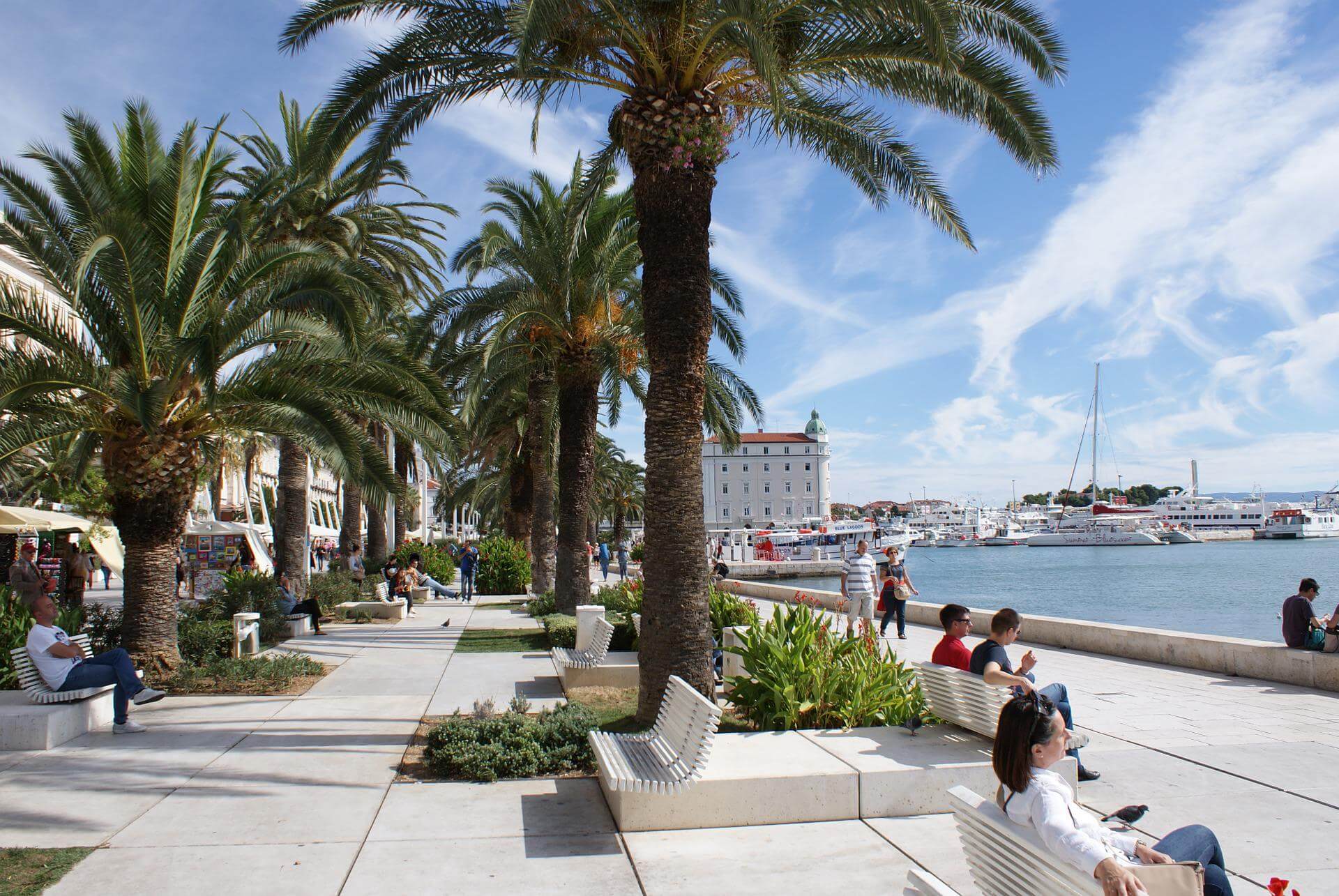
Split Riva ; source: Pixabay
10.00 a.m. – 13.00 a.m.
After eating a proper breakfast and drinking your morning coffee, I would recommend wandering around the city center and especially Diocletian's Palace. There you have many city attractions such as the Saint Duje bell tower, Split city museum, Diocletian's cellars, Split Ethnographic museum, Temple of Jupiter, and of course the main city square Peristil and neighboring Vestibul.
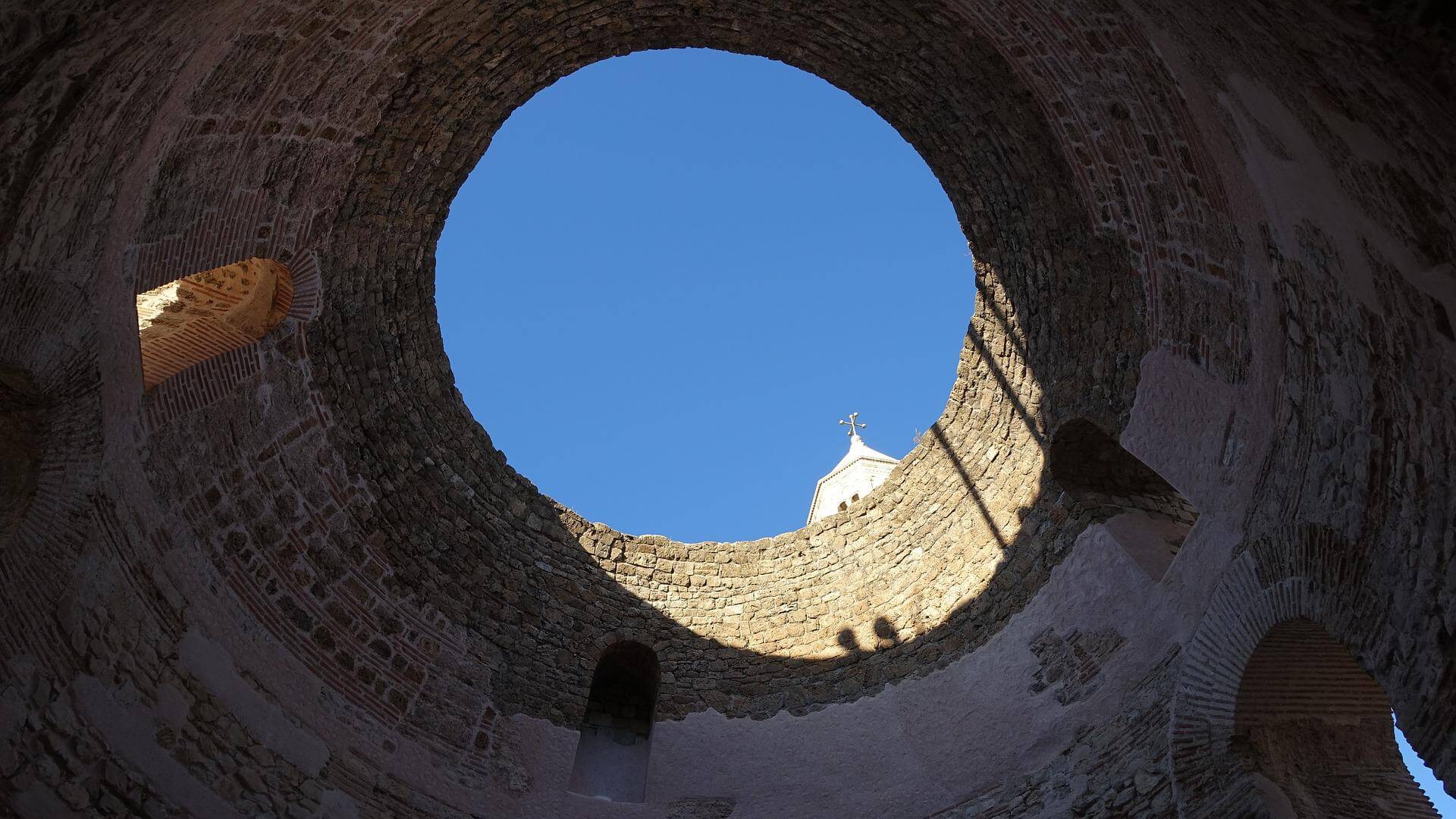
Vestibul ; source: Pixabay
Since it is not possible to visit all of the aforementioned city attractions, I will leave the choice up to you. Nevertheless, I would strongly recommend climbing up the St. Duje bell tower or at least the Vestibul (you can access it through the ethnographic museum) just to get a sense of the city and the surrounding islands.
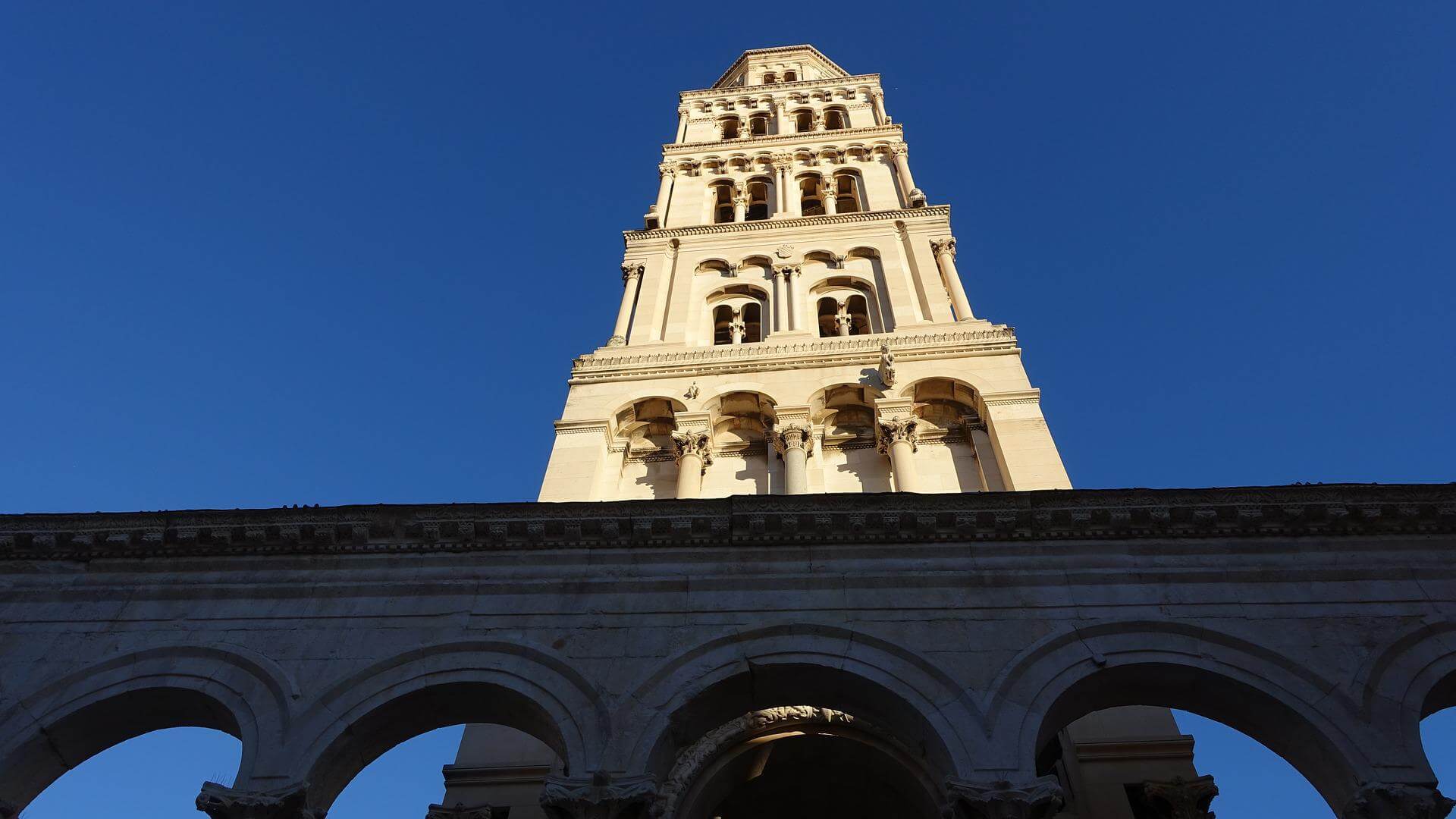
Saint Duje bell tower; source: Pixabay
10.00 a.m. – 13.00 p.m.
It is already lunchtime so it is time to try some of the well-praised local cuisine. There are numerous Dalmatian dishes that you should try, such as Dalmatian prosciutto and cheese, Pašticada, Gregada, Škampi na Buzaru, Peka (veal, octopus, or lamb), Fritule, Rožata, Soparnik, Viška pogača, Crni rižot (Squid Ink risotto) and many many more. Some of the well-praised local restaurants are the following: Konoba Varoš, Konoba Hvaranin, Šug, Zrno Soli, Adriatic, Uje, and Chops Grill, among many others. If you are traveling on a budget or you would just like to experience the street food of split, then check out this list.
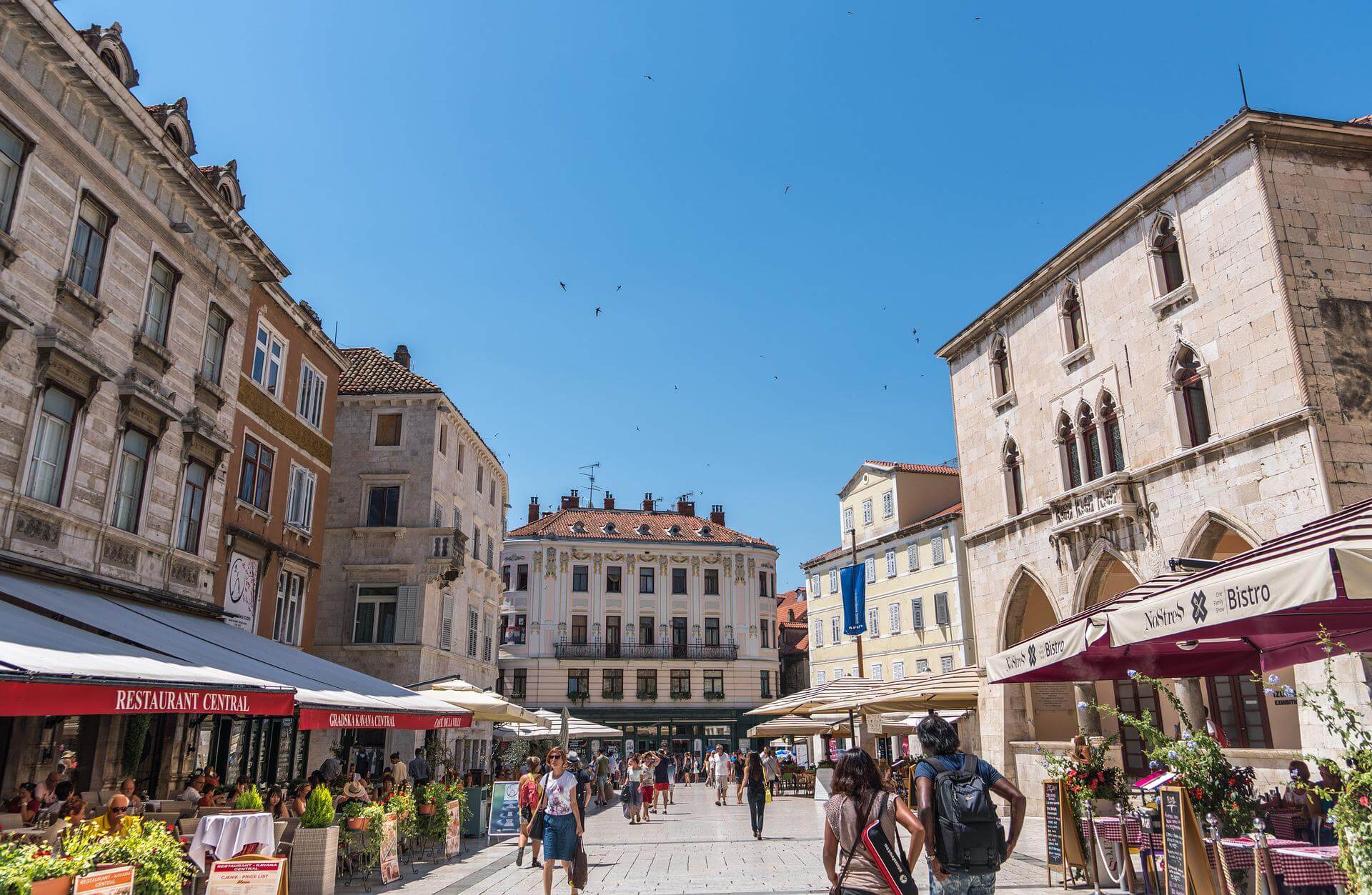
Pjaca; source: Pixabay
4.00 p.m. – 6.00 p.m.
After eating, it is a perfect time for an after-lunch stroll up the Marjan hill. You can access it through the Marjan stairs that lead you to Vidilica and from there to the St. Nicholas church. From there you can either continue further or if you are in the right mood you can climb up to the peak (takes around 30 minutes).
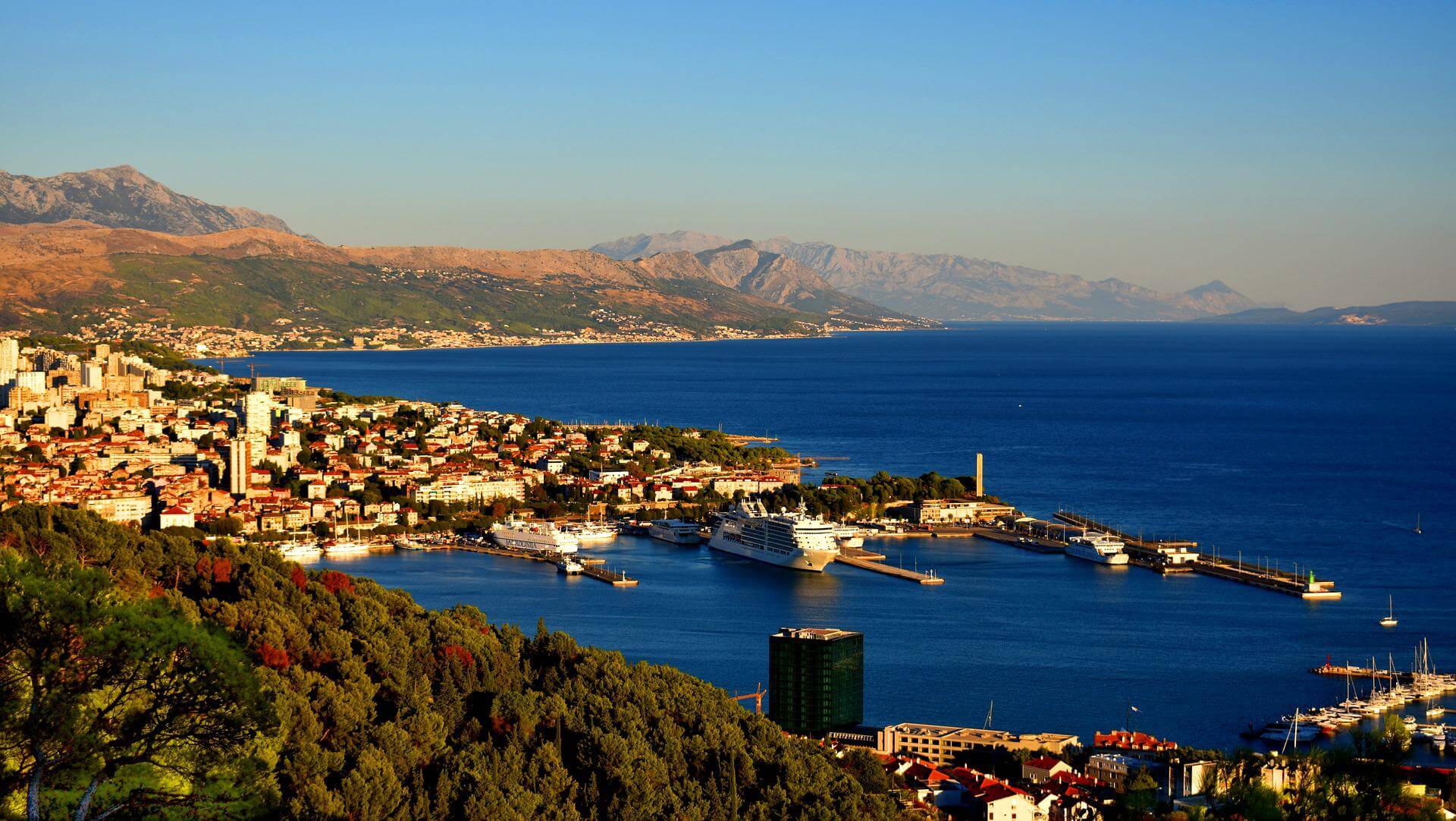
View from the Marjan Hill; source: Pixabay
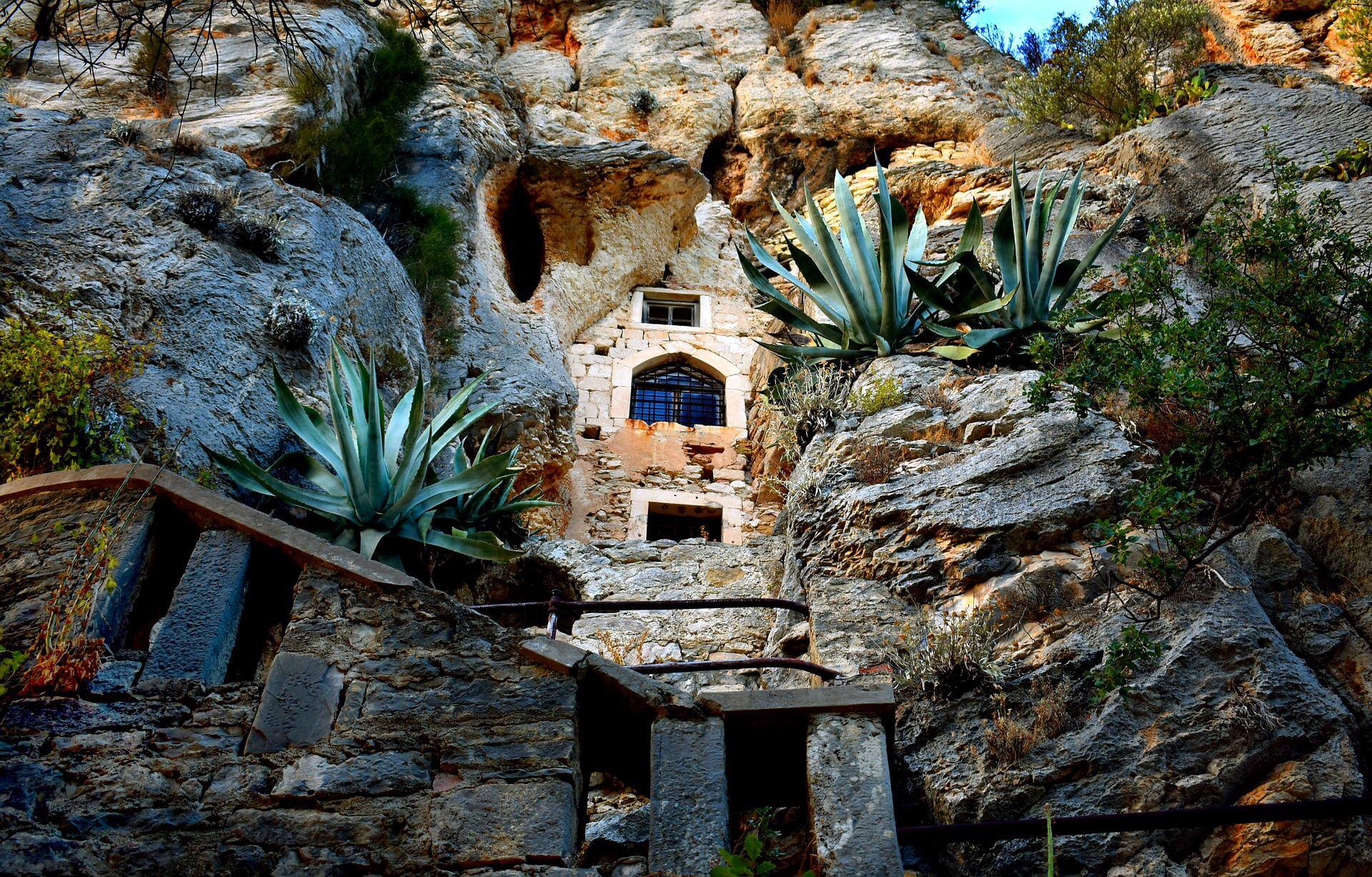
hermitage of St. Cirijaka on Marjan; source: Pixabay
Besides the already mentioned Split city museum and the ethnographic museum which are in the city center, there are three other museums I would strongly suggest visiting. The first one is located close to the Marjan hill and it is the Museum of archaeological monuments. The second one is the Split archaeological museum located near the magnificent Poljud city stadium (home ground of Hajduk Split). Lastly, the third one is the Croatian Maritime Museum, located in the Baroque fortress of Gripe which is also a great place to visit (a 10-minute walk from the city center).
If you are visiting Split in the summertime, you should check out the beaches around the Marjan hill since these are the least crowdy and nature there is simply stunning. If you are into sports, you should head down to Bačvice or Firule beach where you will find locals playing a local game of picigin.
6.00 p.m. – 9:00 p.m.
It is time to head back to the city center, on your way you can visit Sustipan and Zvončac which are two small parks. From there you can walk along the Zapadna Obala (West Coast) towards the center. It is again time to experience local dishes preferably seafood accompanied by world praised Dalmatian wines. Split thrives in the evening and you can feel its energy on every corner, especially in the summer.
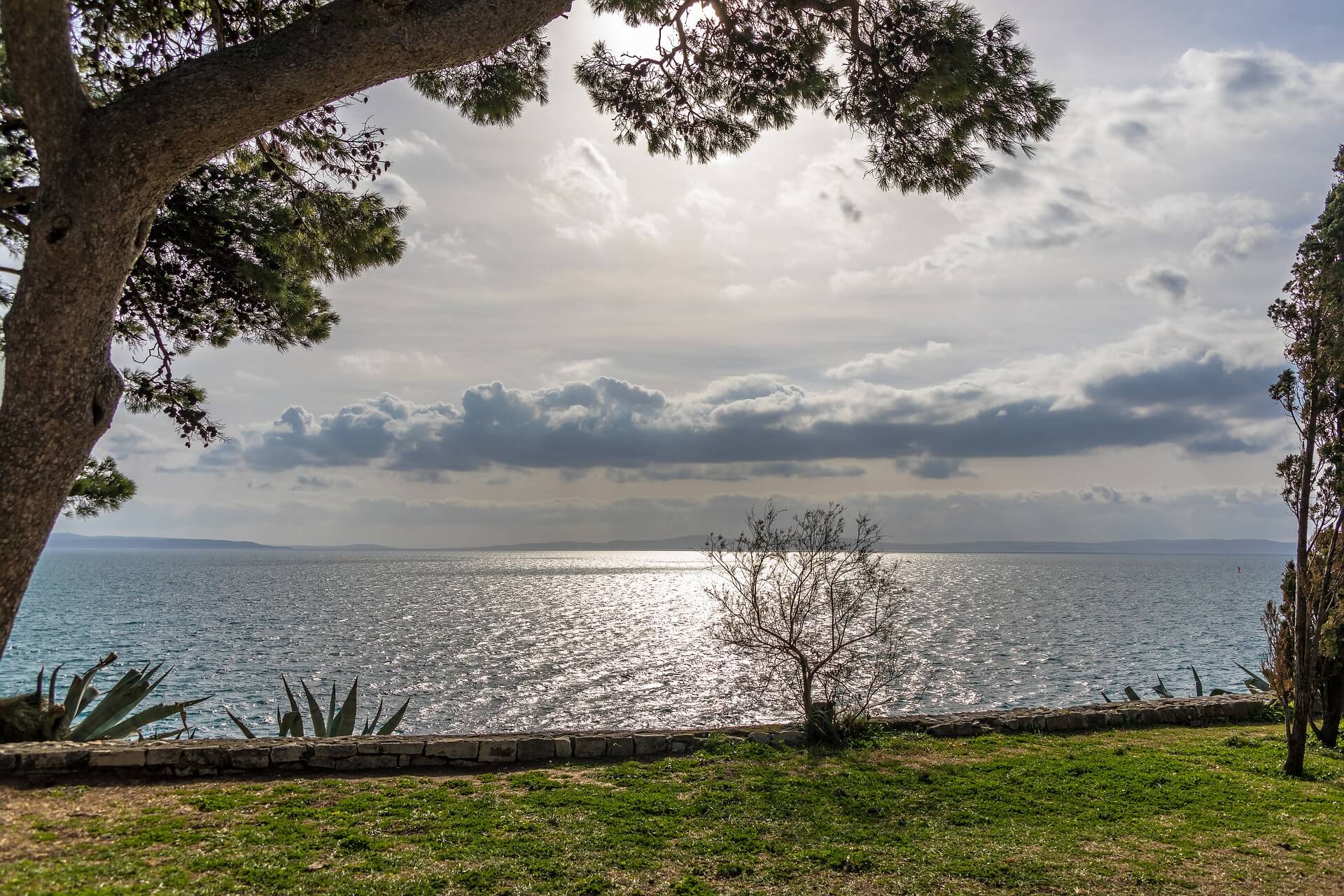
View from the Sustipan peninsula; source: Pixabay
There is always something happening in the city, bars such as Basket, Adriatic Social Club, Ghetto, Flag Pub, and Charlie's are known for live performances and good music. On the other hand, there is Hrvatski Dom which offers a wide variety of classical music events. Split has a deep connection with music, and if you don't know who Dino Dvornik or Oliver Dragojević are then please find out as quickly as possible. Needless to say that it is not a coincidence that Split is home to many music festivals such as Ultra Europe, Split Summer Festival, Split Festival, Split Blues Festival, Fibra Festival, Ego Free Festival, and Xstatic. There are also two important film festivals taking place in Split, Mediterranean Film Festival (June) and Split Film Festival (September).
9.00 p.m. – onwards
If you are still looking for action, then I suggest either staying in the city center where you can visit numerous bars and pubs and even end up in a club such as Kuka, Central or 305 AD. If you want to extend the nightlife even further and you don't mind getting out of the center then you have two unique possibilities either going to the "Barbarinac Island of love" known in the slang as Barbados or hopping off to some boat party. These two venues happen only through summer and usually over the weekend.
That would be all for Split in 24 hours, to be honest, you should multiply these hours by at least 5 since this is undoubtedly one of the pearls on the Adriatic coast as well as in the Mediterranean.
If you want to find out more about Split, check out our dedicated section Split in a page 2022.
For more on travel in Croatia, follow TCN's dedicated page.


